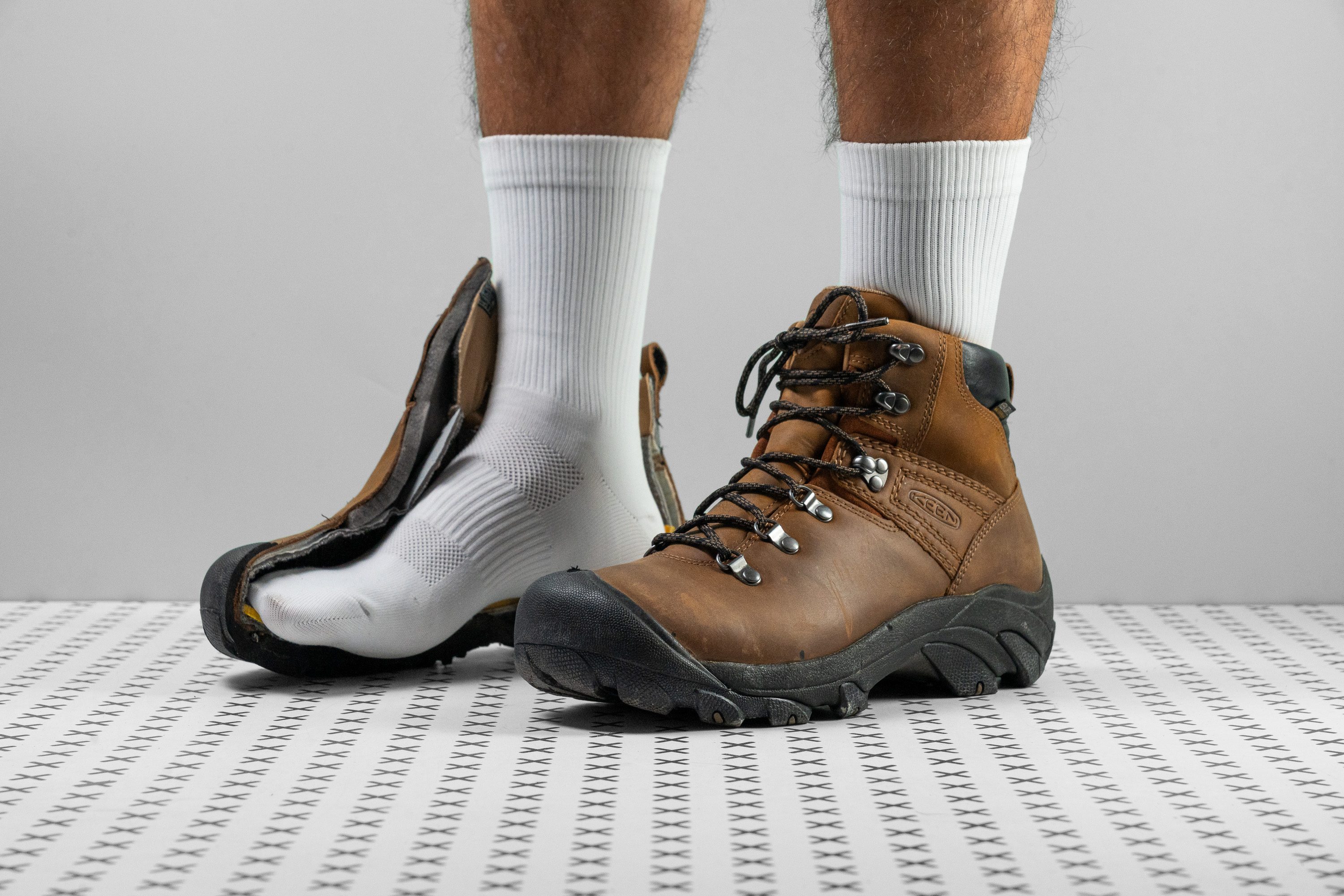Our verdict
- Top pick in best backpacking boots
- Top pick in best waterproof hiking boots
Pros
- Premium nubuck leather quality
- Top-notch waterproofing
- Tons of impact protection
- Surprisingly soft cushioning
- Excellent stability and support
- Very wide, accommodating toebox
- Convenient lacing system
Cons
- Too bulky and heavy
- Tongue edges dig into shins
- Lacks traction for mud, ice, and snow
Audience verdict
Comparison
The most similar hiking boots compared
+ + Add a shoe | |||||
|---|---|---|---|---|---|
| Audience score | 88 Great! | 84 Good! | 84 Good! | 77 Decent! | |
| Price | $170 | $160 | $230 | $229 | |
| Trail terrain | Moderate | Moderate | Technical | ModerateTechnical | |
| Shock absorption | - | Low | Low | - | |
| Energy return | - | Moderate | Moderate | - | |
| Weight lab Weight brand | 21.7 oz / 615g 20.9 oz / 592g | 19.9 oz / 563g | 23.4 oz / 663g 23.1 oz / 655g | 20.6 oz / 583g 20.6 oz / 585g | |
| Breathability | Warm | Warm | Warm | Warm | |
| Use | BackpackingDay Hiking | BackpackingDay HikingSnowBeginners | BackpackingDay HikingSnow | BackpackingDay HikingSnow | |
| Orthotic friendly | ✓ | ✓ | ✓ | ✓ | |
| Drop lab | 16.7 mm | 16.4 mm | 18.0 mm | 14.0 mm | |
| Size | True to size | Slightly small | True to size | Slightly small | |
| Midsole softness | Soft | Firm | Balanced | Balanced | |
| Difference in midsole softness in cold | Normal | Small | Normal | Small | |
| Heel counter stiffness | Moderate | Stiff | Stiff | Moderate | |
| Stiffness | Stiff | Flexible | Stiff | Moderate | |
| Outsole hardness | Very hard | Average | Average | Hard | |
| Waterproofing | Waterproof | Waterproof | Waterproof | Waterproof | |
| Material | Leather | LeatherMesh | Textile | Suede | |
| Season | Winter | Winter | Winter | Winter | |
| Toebox durability | Good | Bad | Good | Good | |
| Heel padding durability | Decent | Bad | Good | Decent | |
| Outsole durability | Bad | Decent | Decent | Good | |
| Width / fit | Wide | Medium | Wide | Medium | |
| Toebox width | Wide | Medium | Medium | Narrow | |
| Lug depth | 3.6 mm | 4.6 mm | 4.7 mm | 4.0 mm | |
| Heel stack lab | 41.0 mm | 38.7 mm | 38.0 mm | 34.2 mm | |
| Forefoot | 24.3 mm | 22.3 mm | 20.0 mm | 20.2 mm | |
| Widths available | NormalWide | Normal | Normal | Normal | |
| Technology | - | - | Gore-TexOrtholite | Gore-TexVibram | |
| Cut | Mid cut | Mid cut | High cut | Mid cut | |
| Removable insole | ✓ | ✓ | ✓ | ✓ | |
| Ranking | #16 Top 40% | #26 Bottom 36% | #25 Bottom 39% | #39 Bottom 4% | |
| Popularity | #31 Bottom 24% | #37 Bottom 9% | #9 Top 22% | #41 Bottom 1% |
Who should buy
As one of KEEN's best-selling hiking boots, the Pyrenes is a solid option if you:
- prefer all-leather hiking boots
- seek a backpacking boot for heavier loads
- need a pair for day-long outings on moderately rugged trails
- want just one go-to boot for the outdoors, work, and casual wear
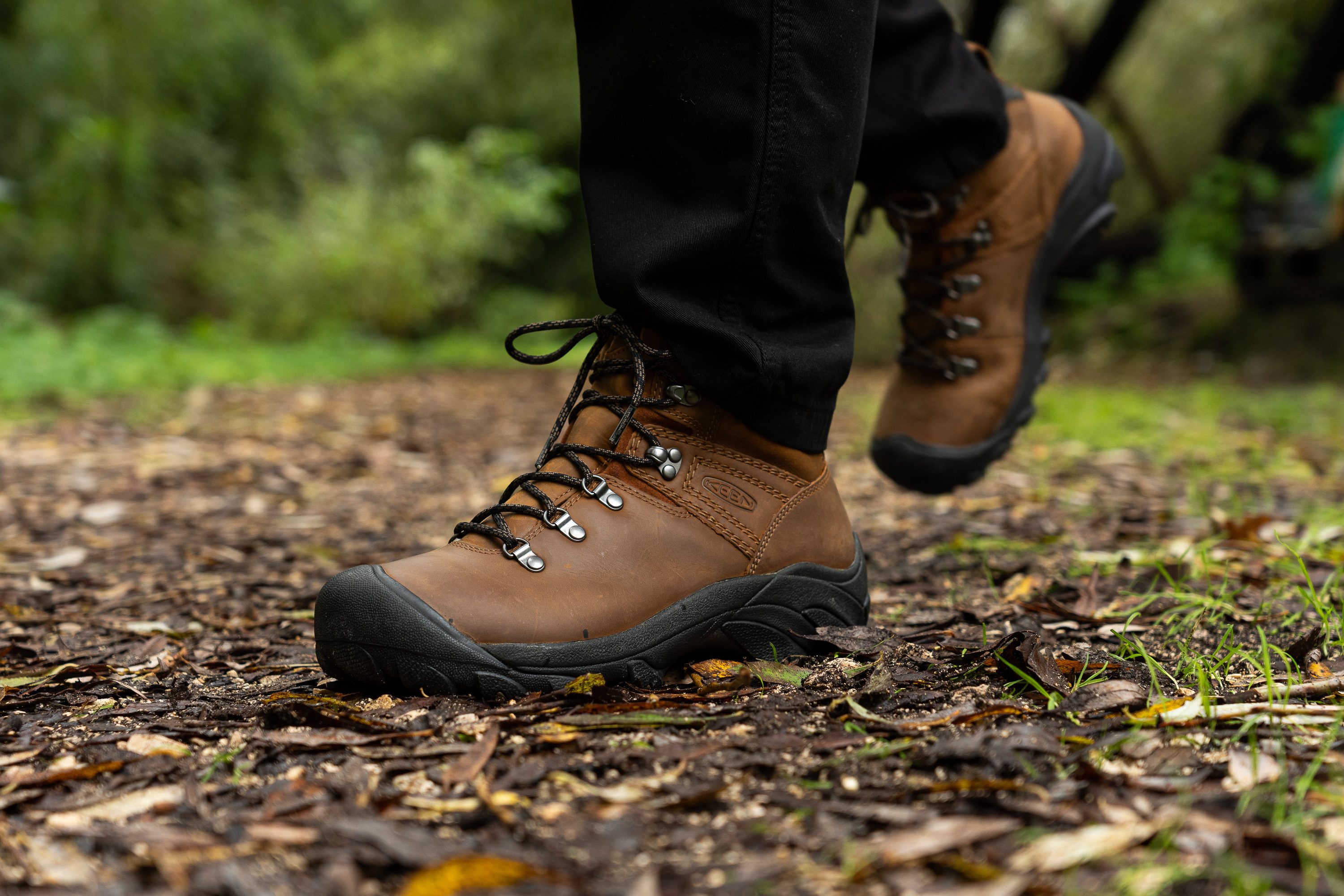
Who should NOT buy
Unless you are hiking in low temperatures (below 50°F or 10°C), the Pyrenees is going to feel like an oven. We think that the boot's leather upper is overkill for warm weather and recommend a synthetic waterproof Salomon X Ultra 4 Mid GTX instead.
If you have concerns about this KEEN boot's hefty weight, there are lighter backpacking options. We recommend the Hoka Kaha 2 GTX or the mind-blowingly light La Sportiva Ultra Raptor II Mid GTX.
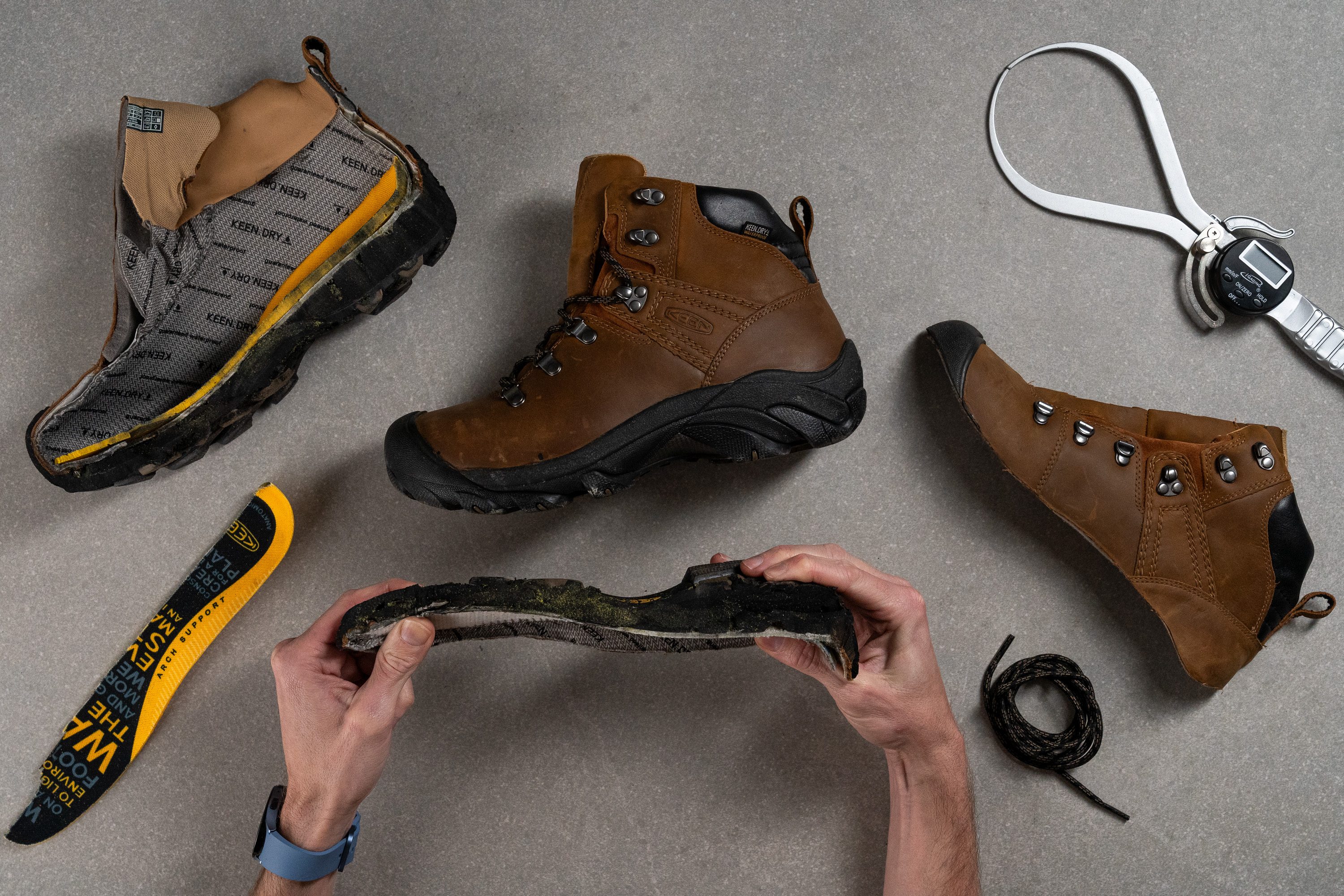
Cushioning
Heel stack
The KEEN Pyrenees justifies its heft with a massive amount of underfoot cushioning. There is a ton of impact and terrain protection granted by the boot's high stack.
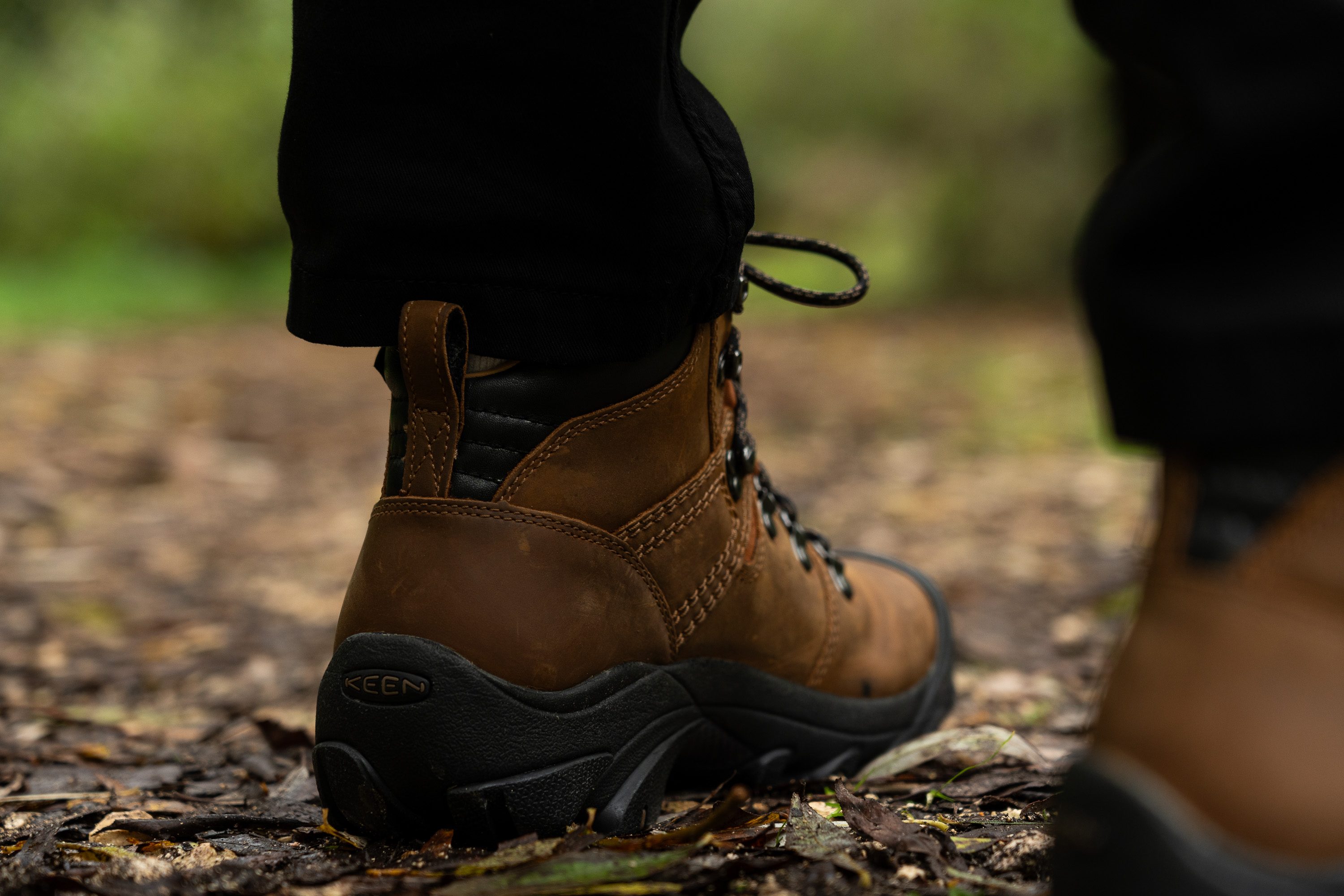
Based on our caliper measurements, the heel thickness comes in at 41.0 mm. This is actually MUCH lower than the officially stated 53 mm but still considerably thicker than the average.
The Pyrenees even outplayed the beastly Hoka Kaha 2 GTX (39.3 mm).
| Pyrenees | 41.0 mm |
| Average | 36.3 mm |
Forefoot stack
The forefoot cushioning of this KEEN shoe happens to be more down to earth. With a caliper measurement of 24.3 mm, it is about the same as the average.
You need that lower stack to help toes feel and navigate the ground better.
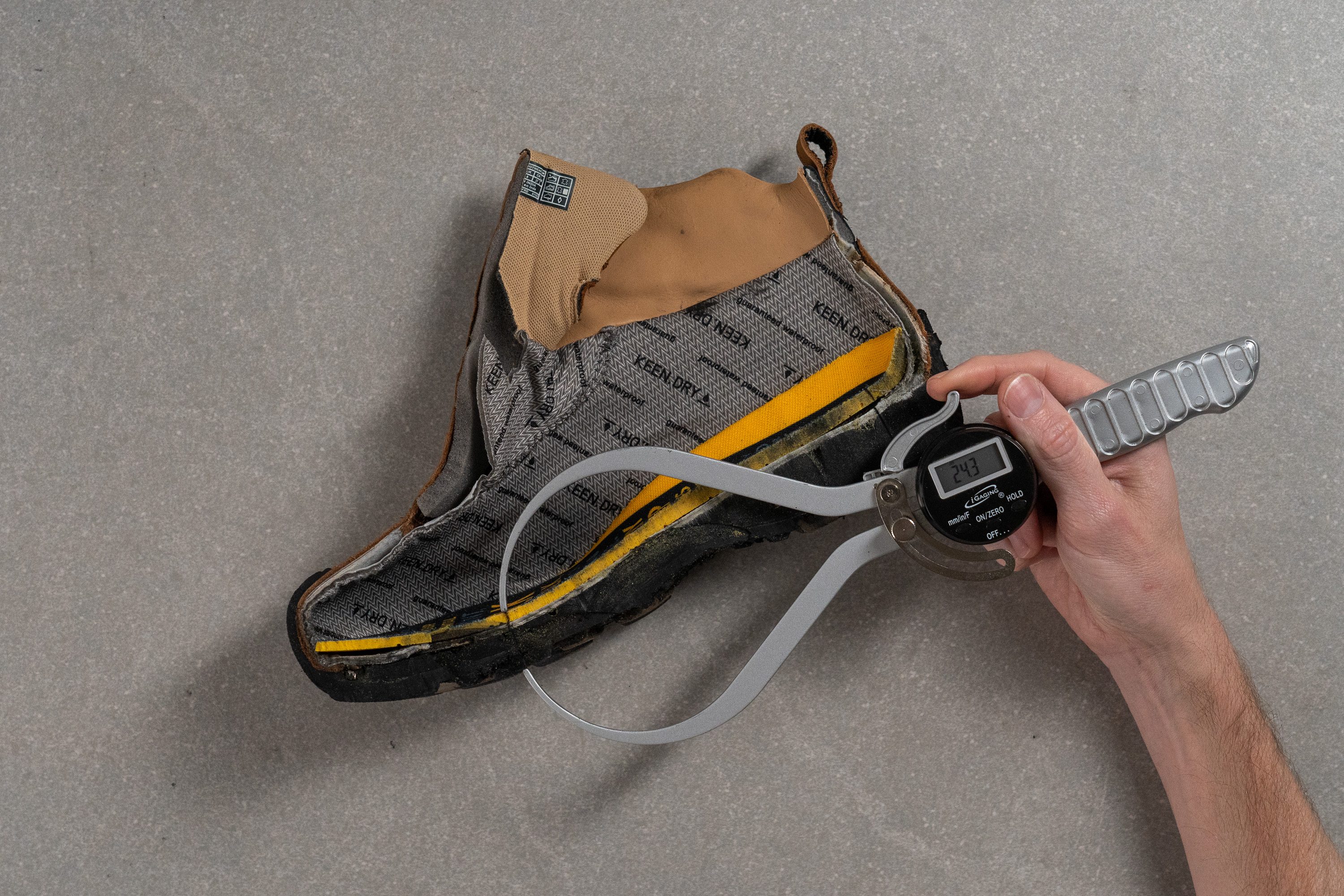
| Pyrenees | 24.3 mm |
| Average | 23.0 mm |
Drop
Based on KEEN's official stats, the drop of the Pyrenees should be 20 mm high. But looking at our own measurements, it turns out to be much lower at 16.7 mm.
Either way, the boot's heel-to-toe differential is much higher than the average. This is a necessary feature for a backpacking boot because that raised heel minimizes stress on the ankle, Achilles, and calf to help you carry heavier loads more ergonomically, with less strain.
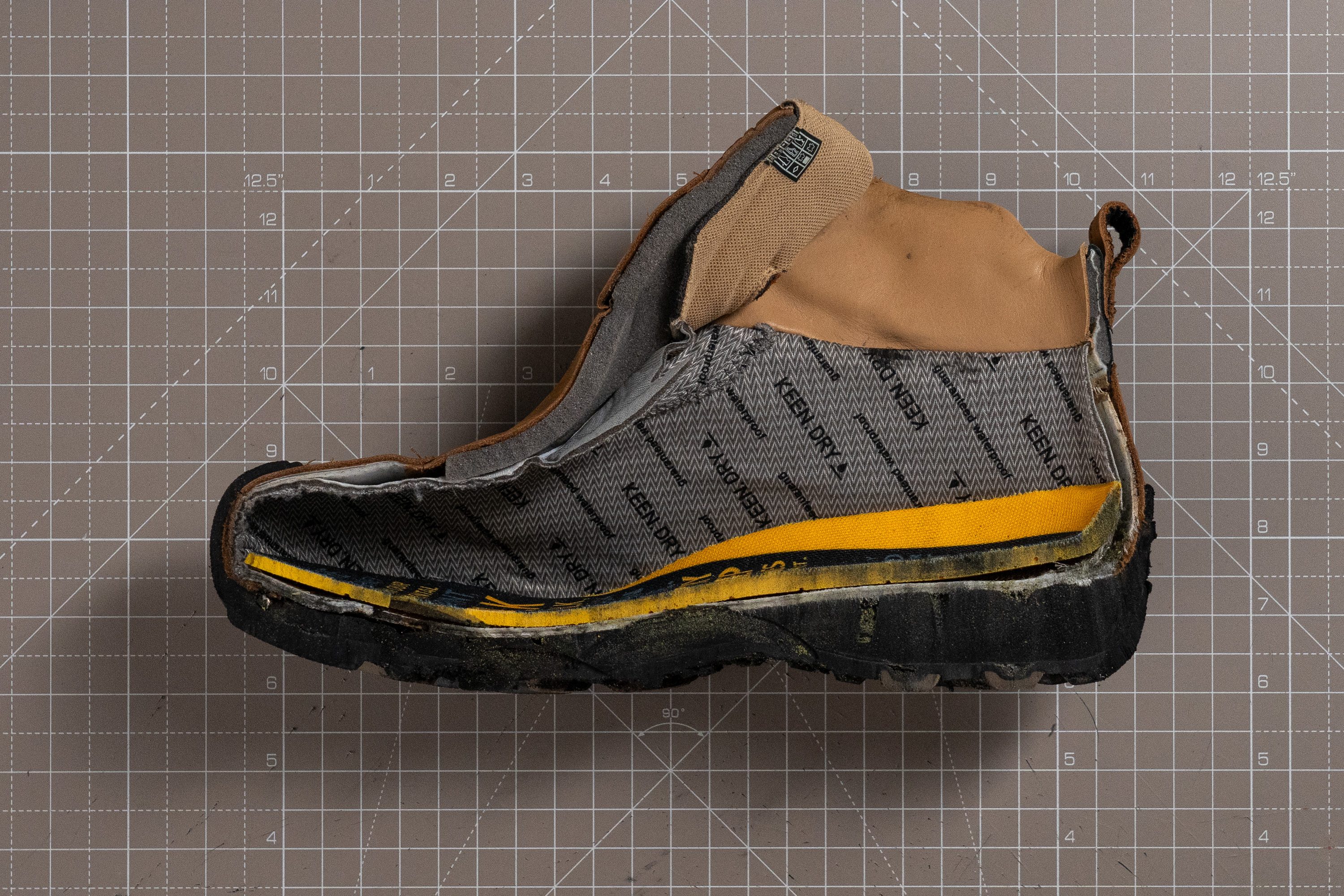
| Pyrenees | 16.7 mm |
| Average | 13.3 mm |
Midsole softness
If you've had your fair share of firm hiking boots, the KEEN Pyrenees is going to be a welcome change.
Showing only 15.9 HA on our durometer, its midsole is a whopping 75% softer than average! This is one of the secrets to why this KEEN boot feels so comfy out of the box.
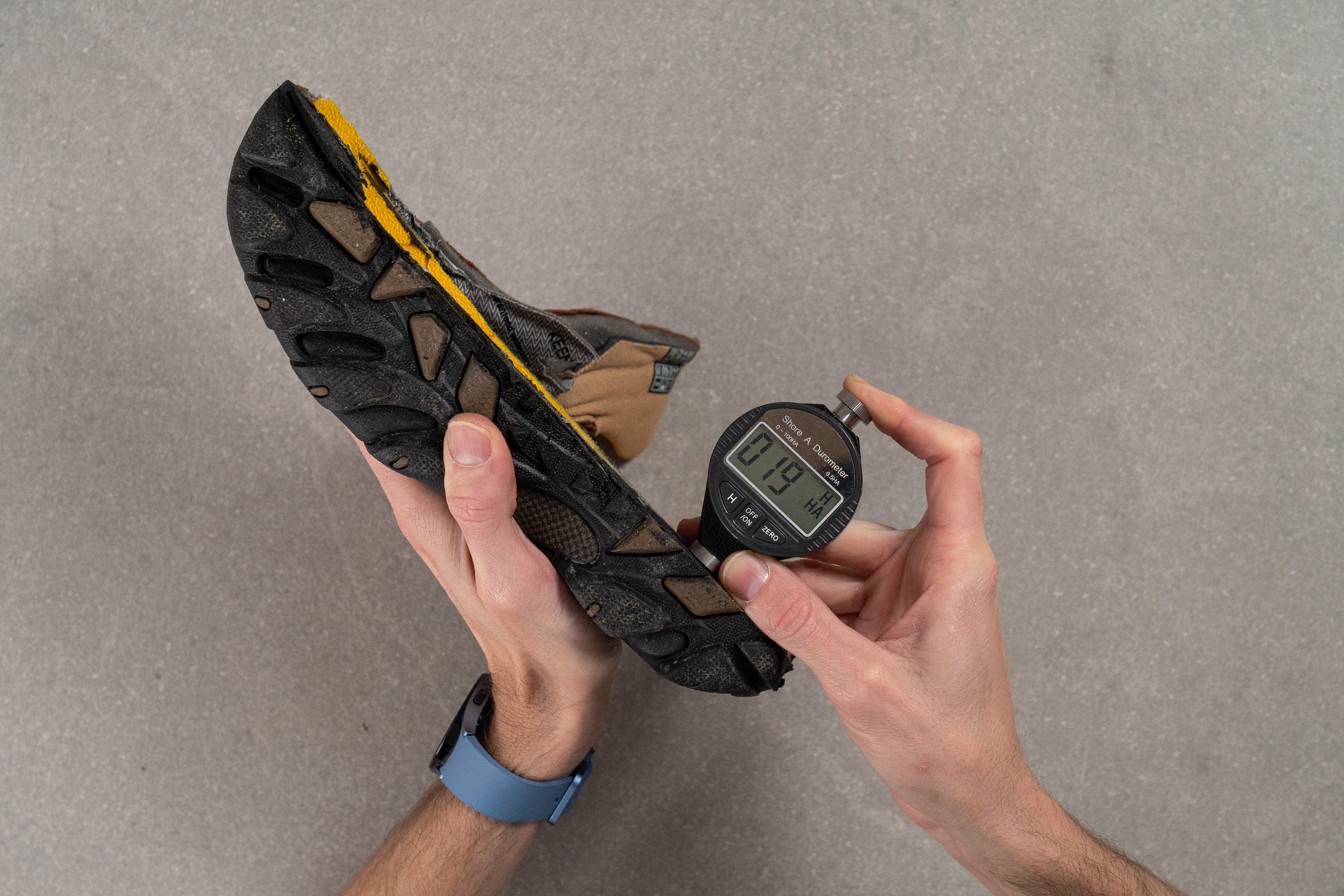
| Pyrenees | 15.9 HA |
| Average | 28.4 HA |
Size and fit
Size
KEEN Pyrenees fits true to size (118 votes).
Internal length
| Pyrenees | 266.9 mm |
| Average | 271.4 mm |
Width / Fit
If your feet are screaming for space, treat them to a pair of KEEN hiking boots. This brand is very well known for offering some of the widest toeboxes on the market!
And the Pyrenees is no exception, of course.
Measuring the widest part of the boot's gel mold, our caliper showed a significantly higher than average reading of 97.2 mm. A few solid millimeters more compared to a standard medium-width boot!
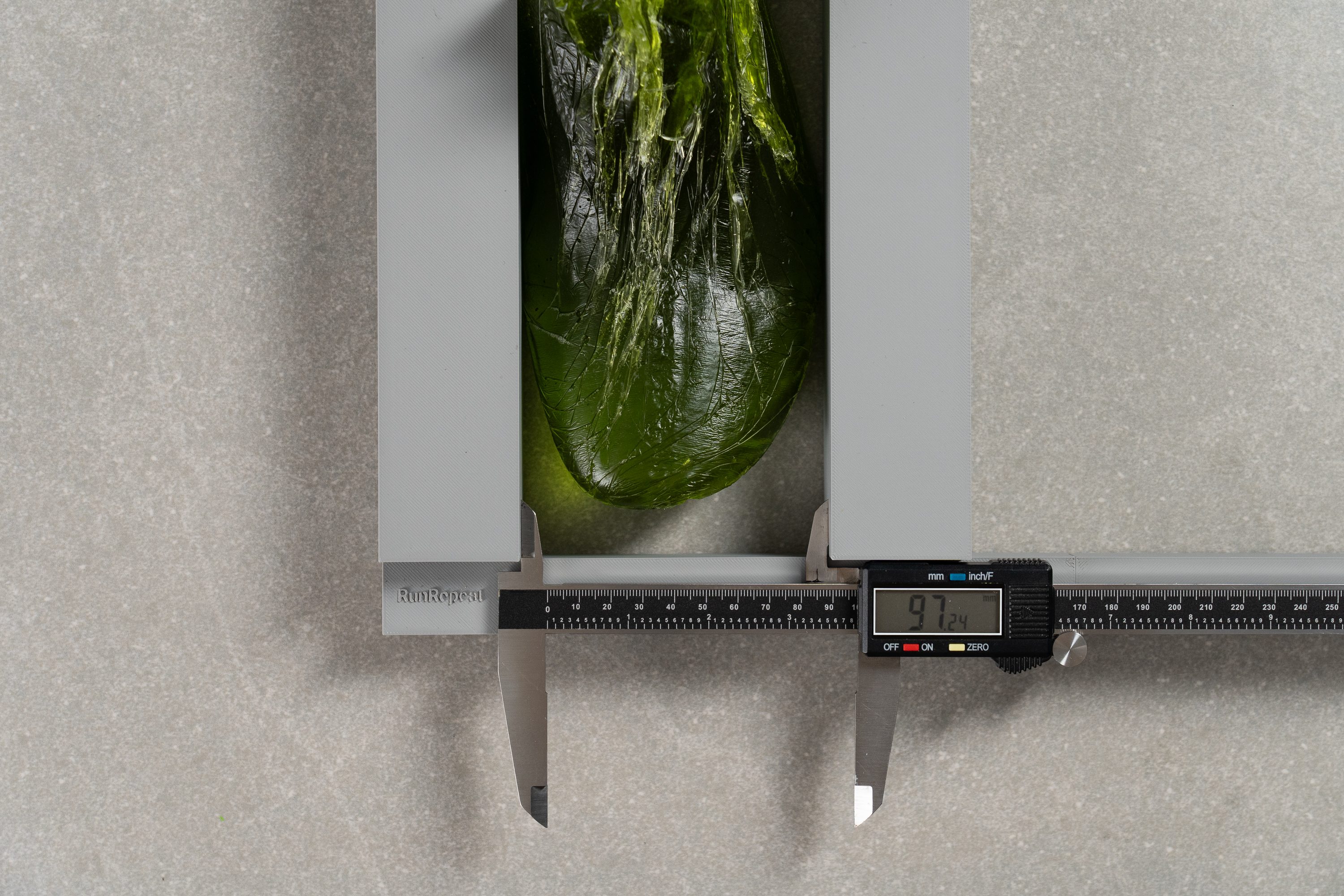
| Pyrenees | 97.2 mm |
| Average | 93.8 mm |
Toebox width
But wait, there is more! The boot's toebox remains wide even around the big toe! No tapering here, only plenty of room to splay toes.
Measuring the toebox width here, we got a whopping 76.6 mm! This is exceptionally wide for a hiking boot, so you can rest assured - your thickest sock is going to fit right in.
In addition to all of this, the nubuck leather on the Pyrenees is on the soft side and requires almost no break-in period.
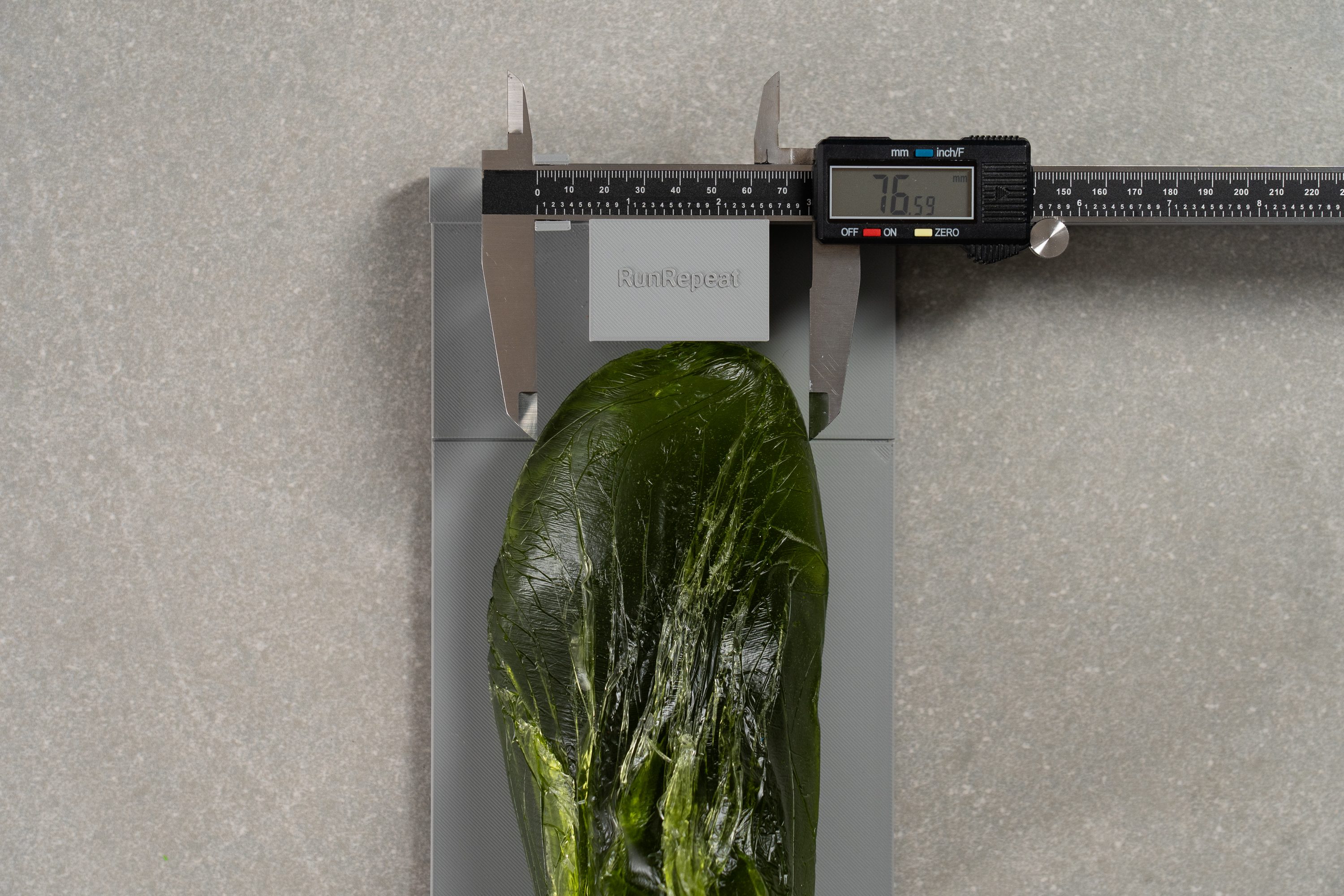
| Pyrenees | 76.6 mm |
| Average | 71.2 mm |
Toebox height
A toebox height of 27.3 mm turned out to be on par with the average offering a decent amount of vertical space.
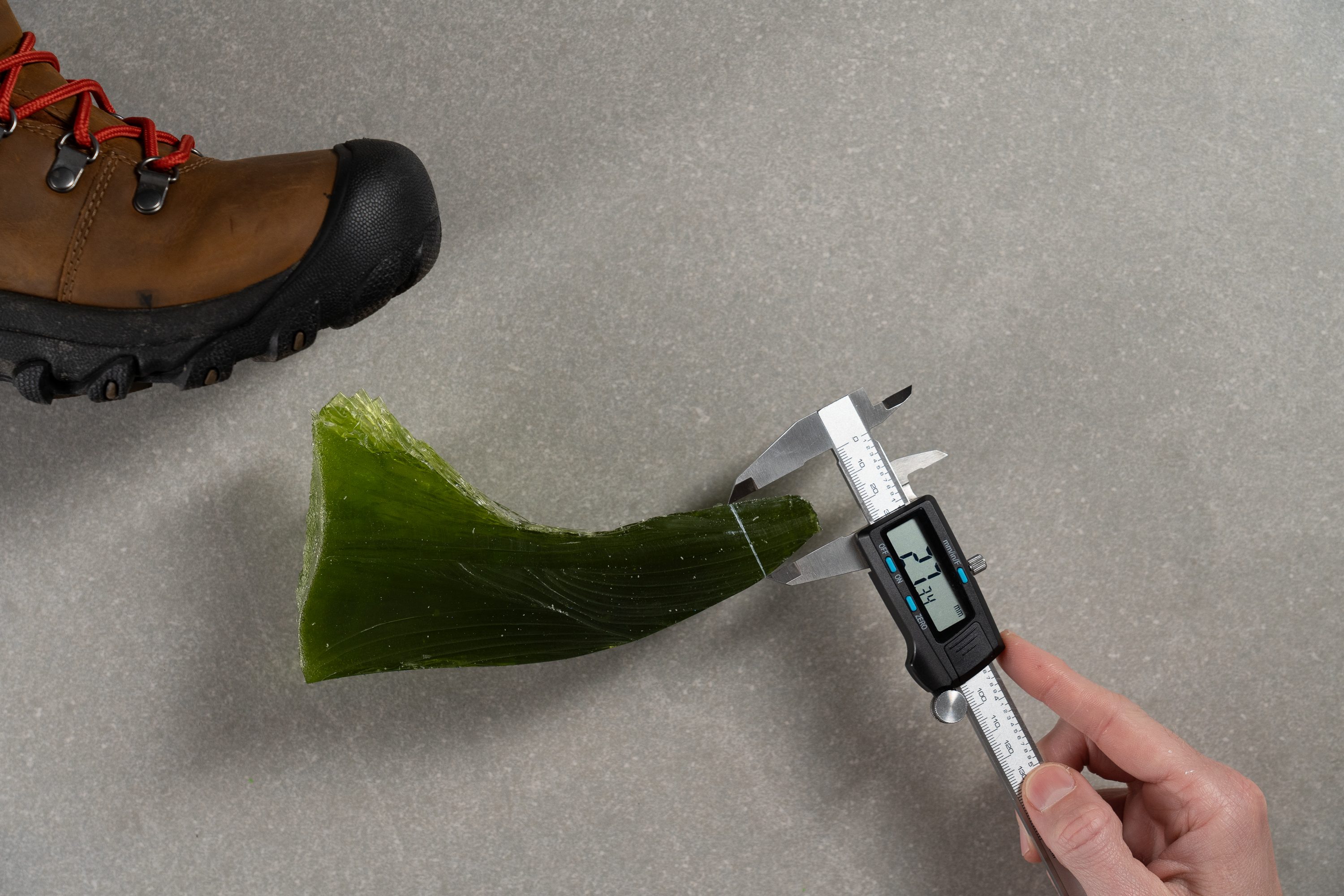
| Pyrenees | 27.3 mm |
| Average | 27.4 mm |
Lacing
The Pyrenees’ closure system uses metallic eyelets, the top three pairs of which are hooks. We loved being able to get the boot on and off quickly with the help of these speed hooks.
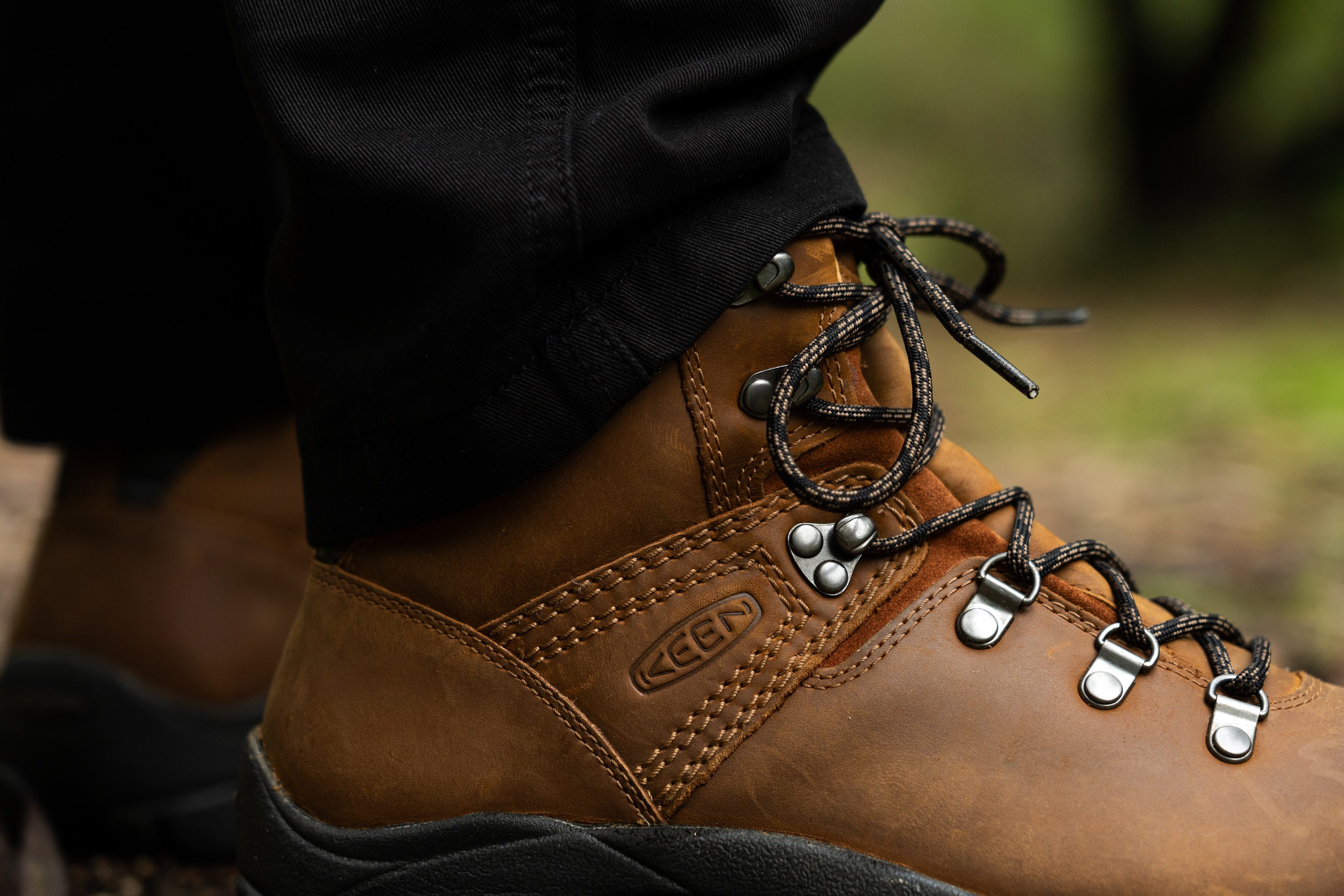
Once the boot was all laced up, it kept our feet very secure. This was especially noticeable when going downhill as we never experienced any smashing of our toes against the front of the toebox.
Oh, and how cool is that! This KEEN boot arrived with an extra set of red laces to switch up the look.
Traction / Grip
Lug depth
In most hiking scenarios, the KEEN Pyrenees gripped the surface really well... Before we encountered stretches of mud, ice, and snow. That's when we kept wishing we had a pair of 5-mm Salomon lugs underfoot.
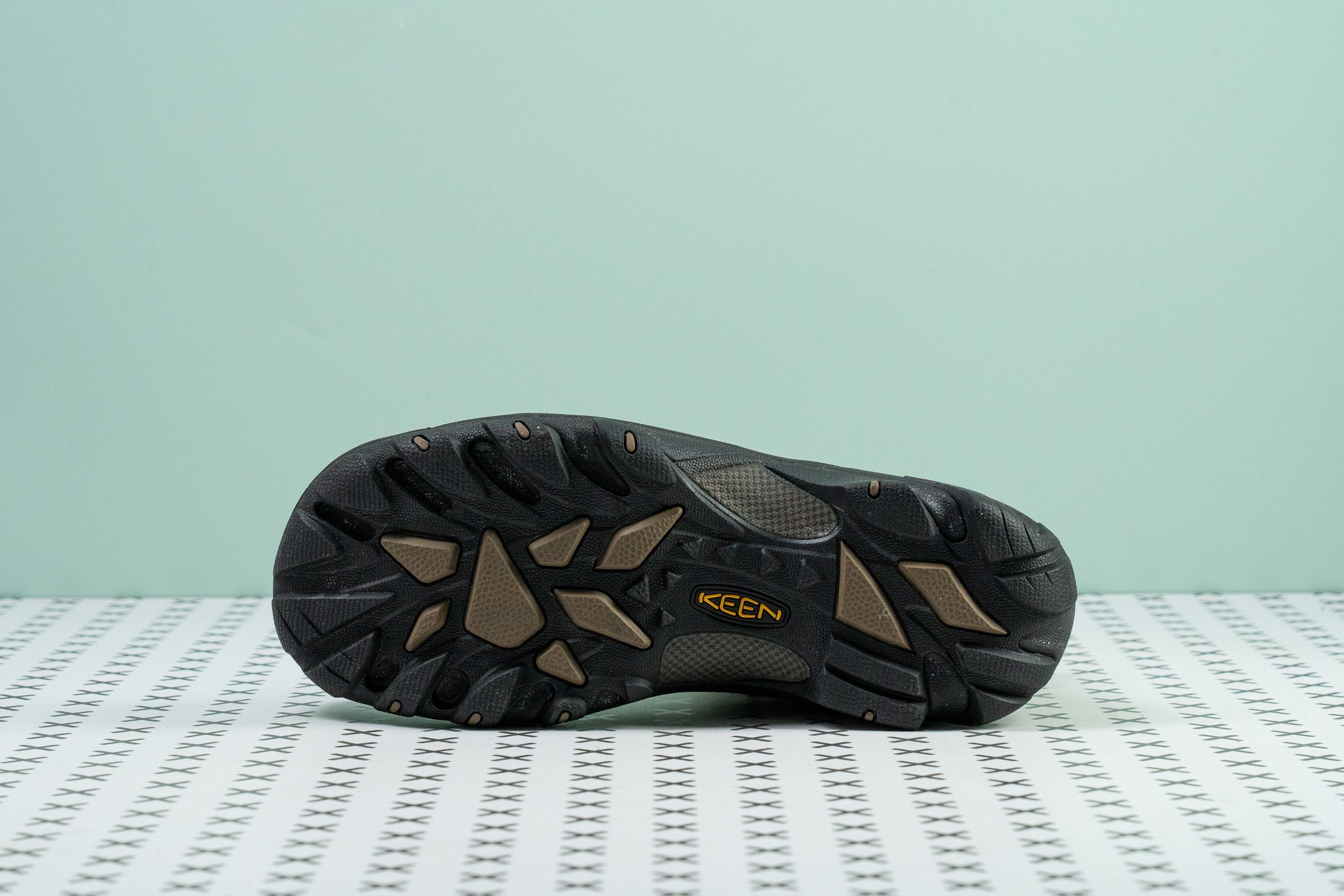
According to the brand, the Pyrenees comes with 4 mm deep lugs. But based on our own caliper measurements, the treads are only 3.6 mm in depth. This may not seem like a big difference but we could definitely feel it on soft terrain.
It's better to reserve this KEEN boot for dry and moderately-technical terrain.
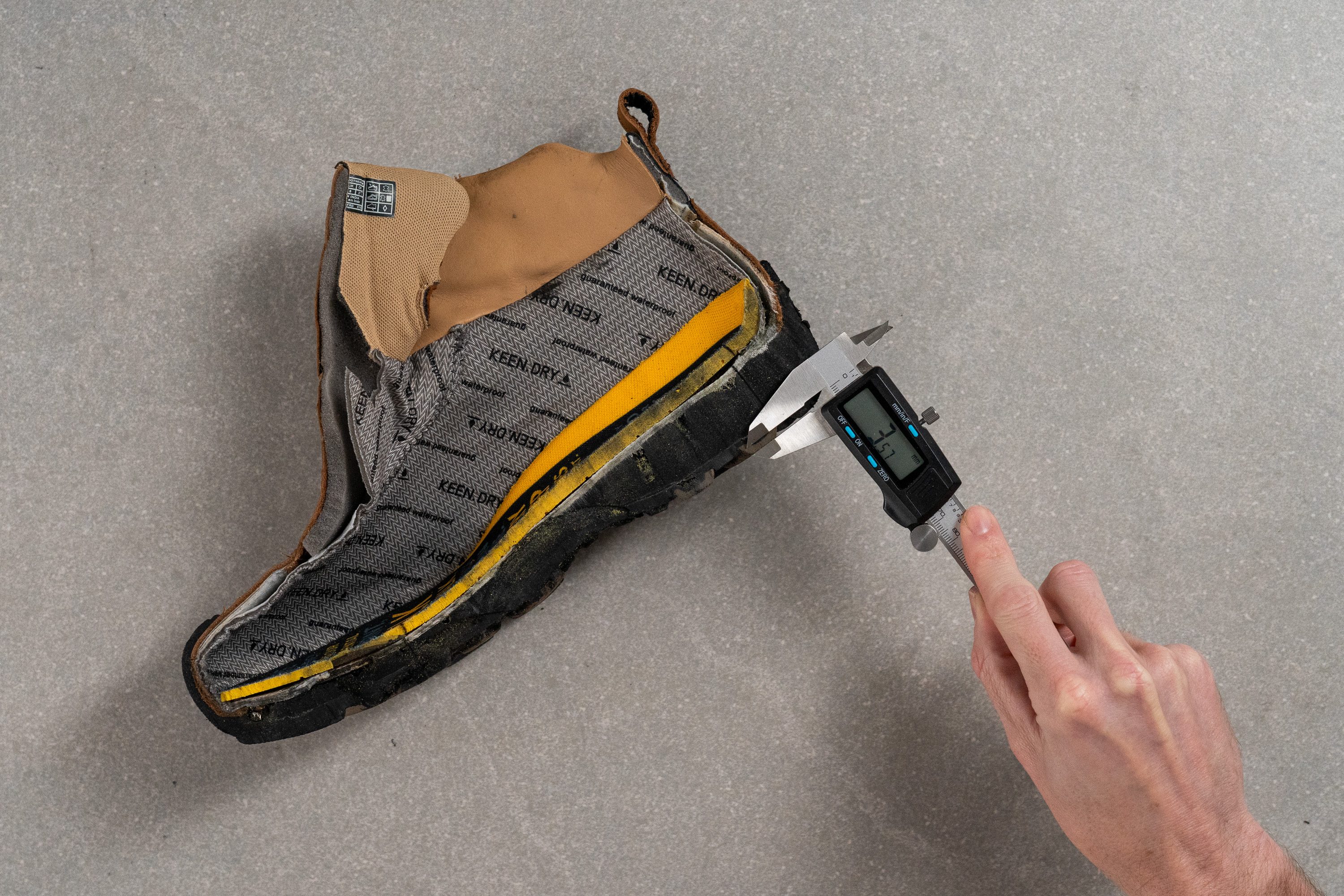
| Pyrenees | 3.6 mm |
| Average | 4.3 mm |
Flexibility / Stiffness
It is expected that a hiking boot for multi-day adventures should be much stiffer than average. It helps the foot make more surefooted strides under heavy load.
In our flexibility lab test, we bent the KEEN Pyrenees to a 90-degree angle and measured how much force it took to do that. Based on our force gauge measurements, the boot required 47.2N which is 7% more than average.
But it's pretty normal and even "flexible" compared to its closest competition, the Hoka Kaha (41.6N) and the Salomon Quest (62.3N).
This test follows an older methodology, which is why you don't see recently tested shoes in the chart. Results from different methodologies can not be compared.
| Pyrenees | 47.2N |
| Average | 44.3N |
Stiffness in cold (%)
What fascinated us about the Pyrenees is how little its stiffness changed in cold conditions!
After 20 minutes in the freezer, our force gauge showed that this KEEN boot only stiffened up by 16.6%! As opposed to the average 48.9%.
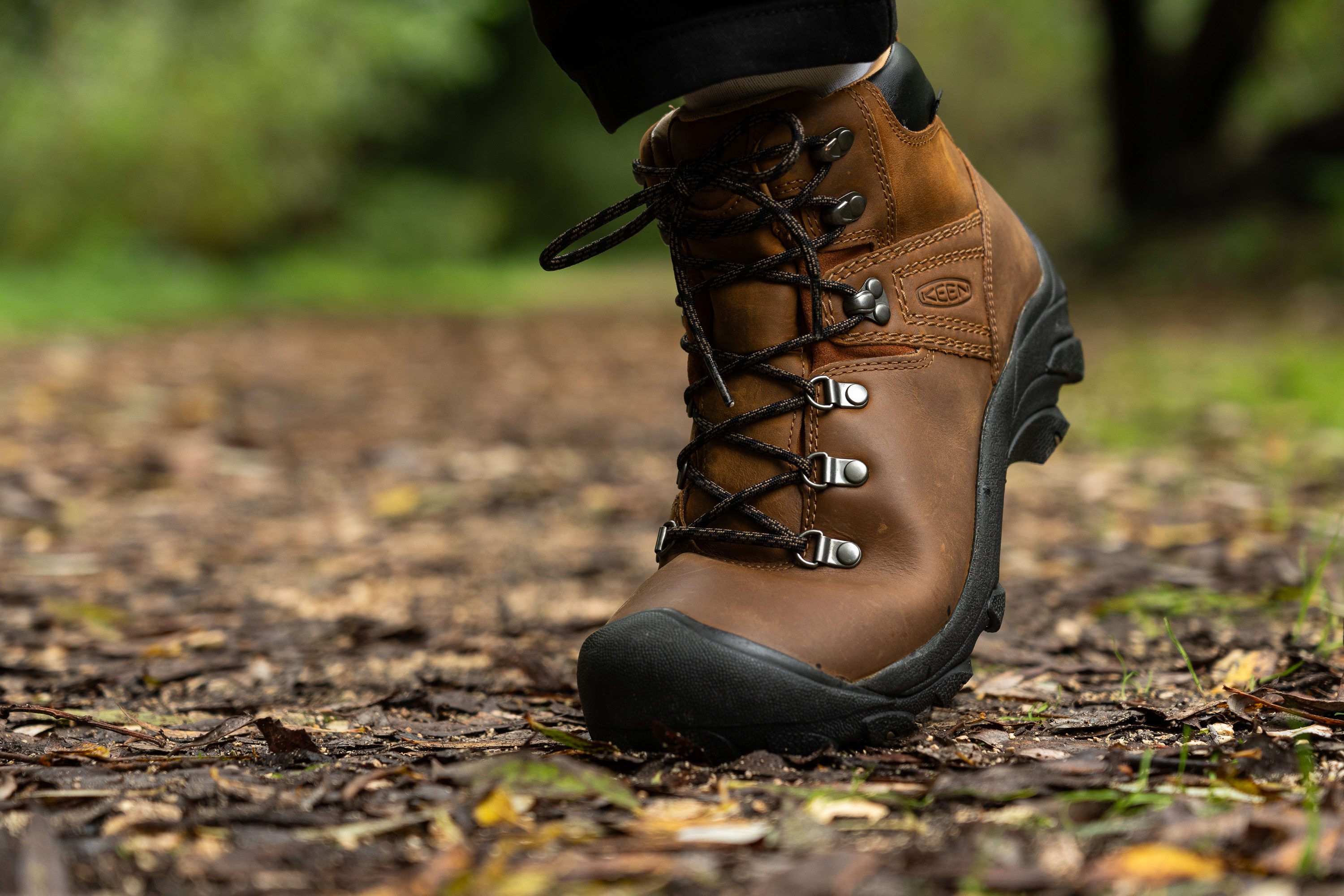
Just one more reason to recommend the KEEN Pyrenees for cold weather!
| Pyrenees | 17% |
| Average | 24% |
Weight
The KEEN Pyrenees is a heavy-set pair of boots.
Weighing it on our scale in a men's US size 9, we got 21.7 oz/615g. This is significantly heavier than the average of all-leather hiking boots (18.4 oz/523g).
Even compared to the average of backpacking boots (20 oz/568g), the Pyrenees is still on the heavy side.
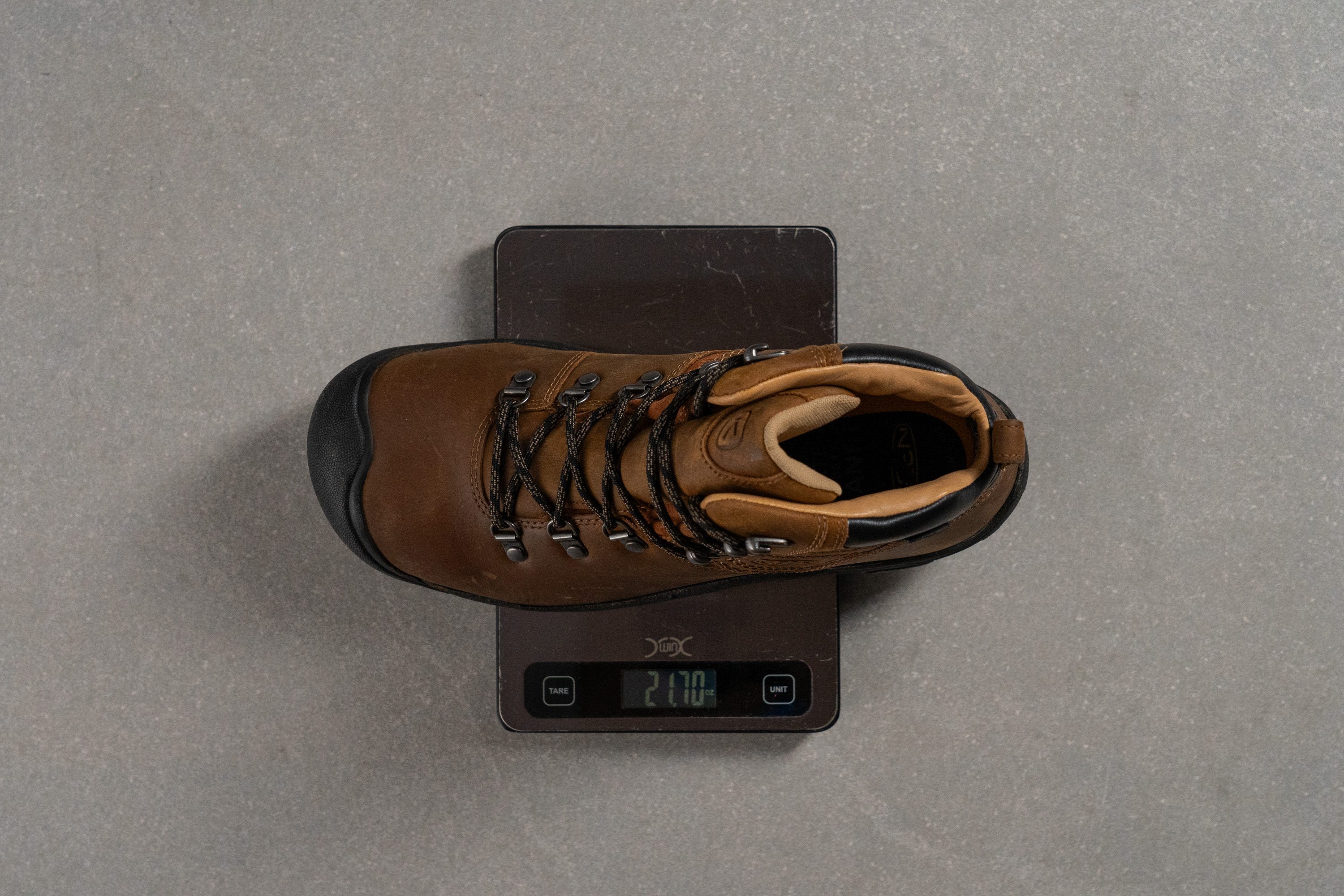
| Pyrenees | 21.7 oz (615g) |
| Average | 18.7 oz (531g) |
Breathability
When the KEEN.Dry waterproof lining meets an all-leather upper, you get a 100% sealed experience. So do keep that in mind if you're planning to wear the Pyrenees in a relatively warm climate.
To show you exactly how stuffy this KEEN boot is, we pumped smoke through its upper in our lab test. Compared to the breathable Merrell Moab 3 on the right, the Pyrenees traps 99% of the smoke inside its confines.
For that reason, this KEEN boot receives the lowest possible score for breathability - 1 out of 5.
But the good news is that crossing a stream will never be an issue in the Pyrenees. Our feet remained dry every time.
| Pyrenees | 1 |
| Average | 1.3 |
Stability
Lateral stability test
This is one stable hiking boot!
We believe that the KEEN Pyrenees is capable of carrying heavy loads up to 40 pounds thanks to its steady and supportive build.
The boot's primary stability features include a stiff shank in the midfoot, a rigid heel counter, and a firm foothold granted by the leather upper.
Torsional rigidity
A very stiff shank is embedded into the KEEN Pyrenees. It is partially external, so you can actually see and feel it in the boot's midfoot.
On a 1-5 scale, where 5 is the absolute stiffest, we rated its torsional rigidity with a 5.
The shank is a key component that helps the Pyrenees serve its purpose. It is a stable pair for long miles of hiking with a backpack without awkward ankle movements.
| Pyrenees | 5 |
| Average | 4.4 |
Heel counter stiffness
In addition to its sturdy platform, this KEEN boot comes with a barely compressible heel counter. We found that it wraps around the ankle firmly and holds it securely in place throughout the hike.
In our manual squeeze test, we rated the boot's heel counter stiffness as 4 out of 5. Nearly the stiffest!
| Pyrenees | 4 |
| Average | 3.6 |
Midsole width - forefoot
Of course, a backpacking boot wouldn't be complete without a wide platform to rely on.
Measuring the widest part of the sole in the forefoot, our caliper showed 114.3 mm. It is pretty average for a boot, nothing to write home about.
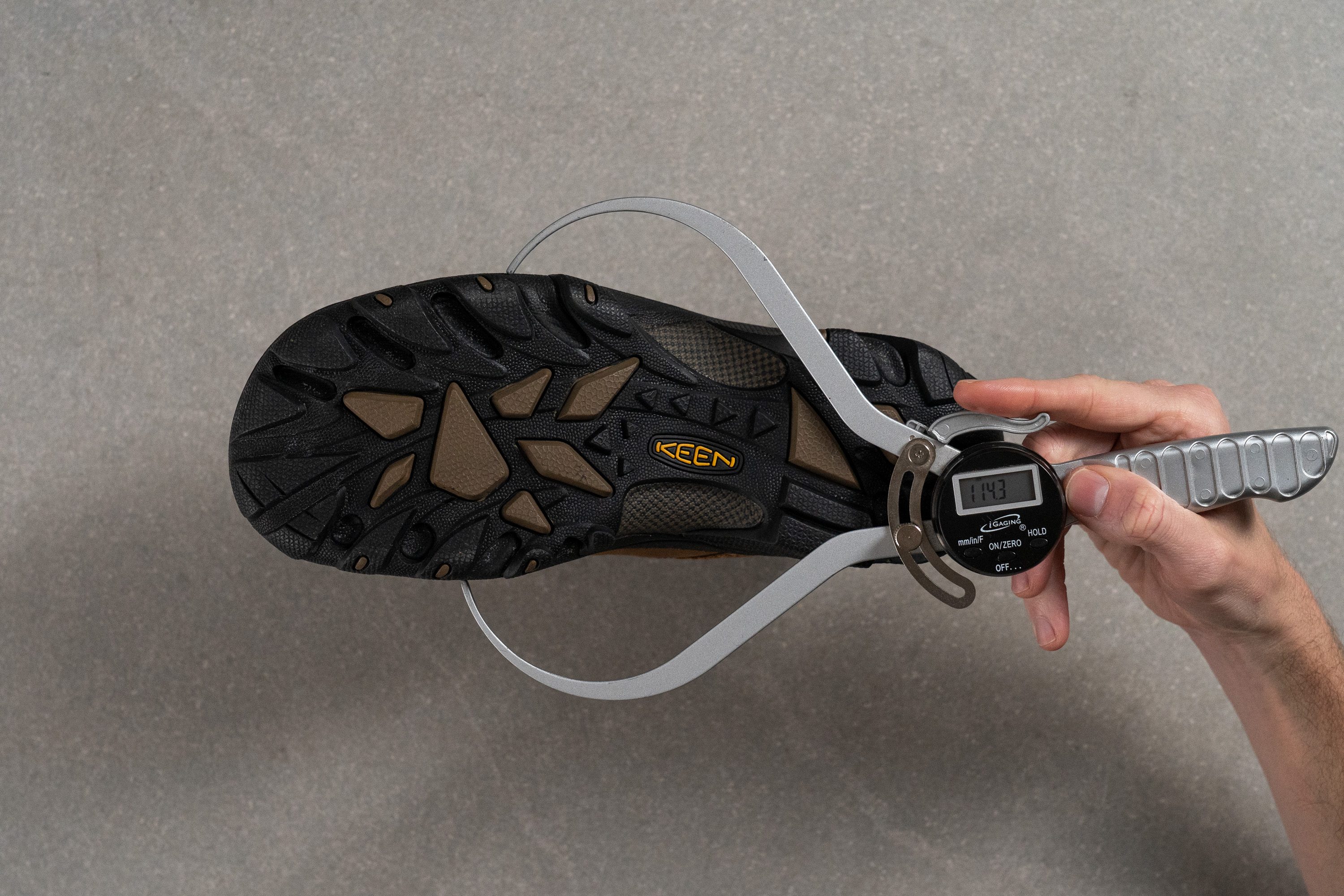
| Pyrenees | 114.3 mm |
| Average | 111.5 mm |
Midsole width - heel
However, looking at the sole width in the heel made us a little concerned. At 85.9 mm, the Pyrenees is slightly narrower than average.
But we must say that on foot it never felt like an issue and its heel width is on par with another popular boot, the Salomon Quest 4 GTX (85.7 mm).
You will probably only notice the difference if you're coming from a monster boot like the Hoka Kaha 2 GTX (106.1 mm).
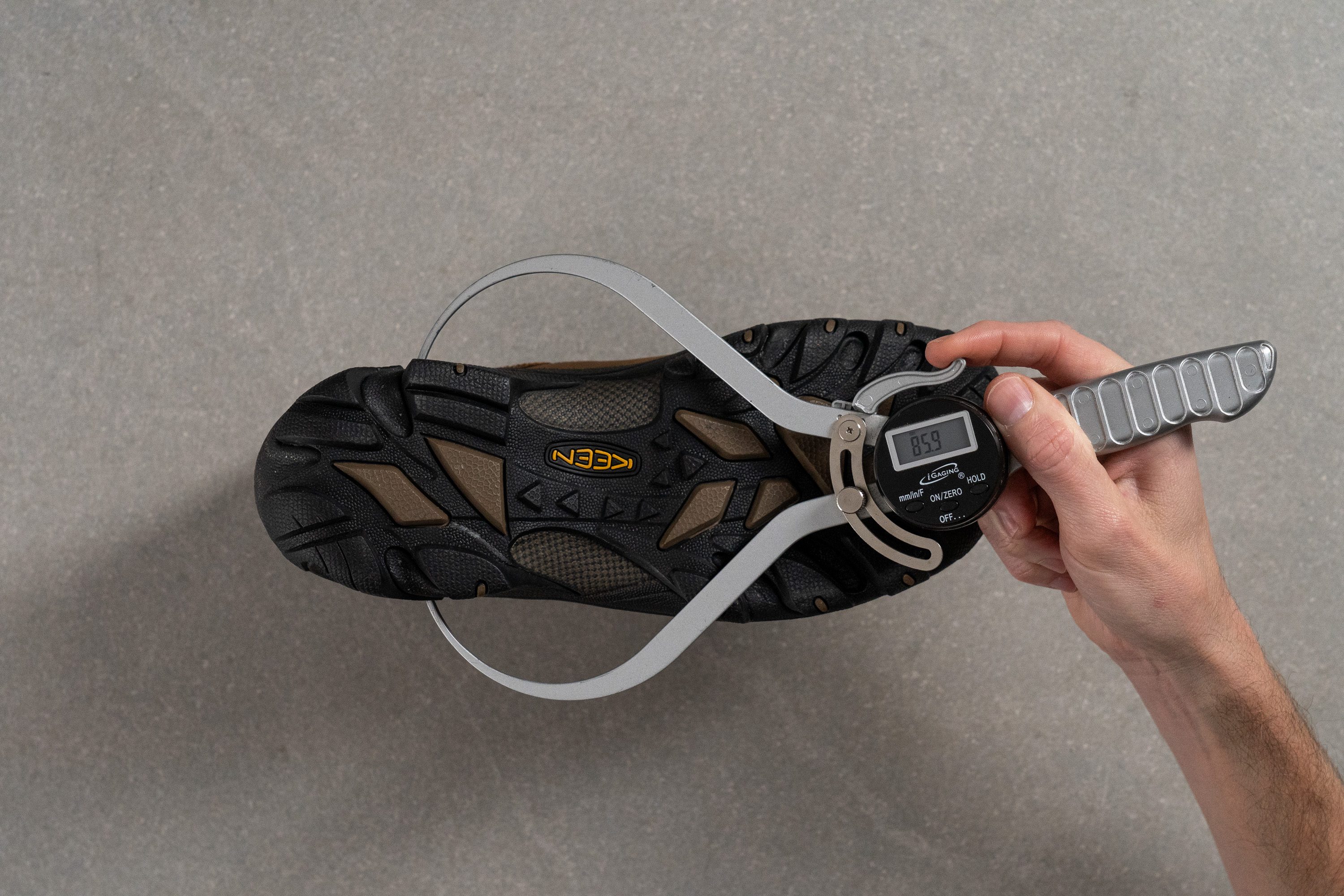
| Pyrenees | 85.9 mm |
| Average | 87.6 mm |
Durability
Toebox durability
Nubuck is the primary upper material of the KEEN Pyrenees. But no matter how sturdy it may be, having a heavy-duty toe cap around it is absolutely essential for a hiking boot's longevity.
In the lab, we tested the wear resistance of this toe bumper with our demanding Dremel. Applying the tool for 12 seconds at a consistent speed (5K RPM) and force (3.2N), all we got was a small blemish.
This was convincing enough for us to rate the boot's toebox durability with a maximum 5/5 score.
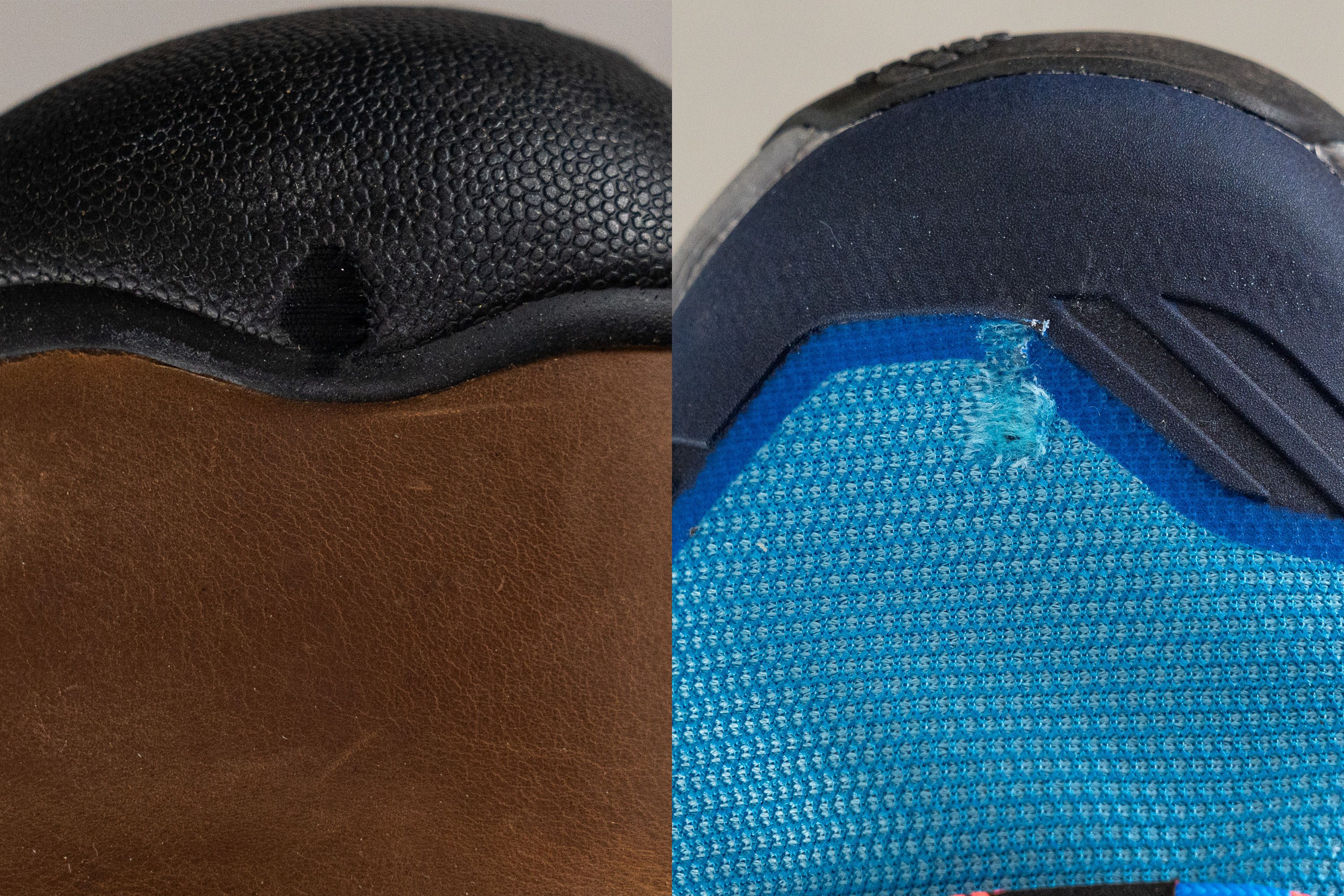
For context, here is what the Dremel does to a mesh-covered toebox with a narrower toe bumper.
| Pyrenees | 5 |
| Average | 4.3 |
Heel padding durability
The interior lining of the KEEN Pyrenees is also lined with leathery material. It proved to be pretty sturdy in a duel with our Dremel.
Four seconds of drilling resulted in a pretty minor scuff that had no effect on the boot's comfort or integrity. This earned the Pyrenees a solid 4 out of 5 for heel padding durability.
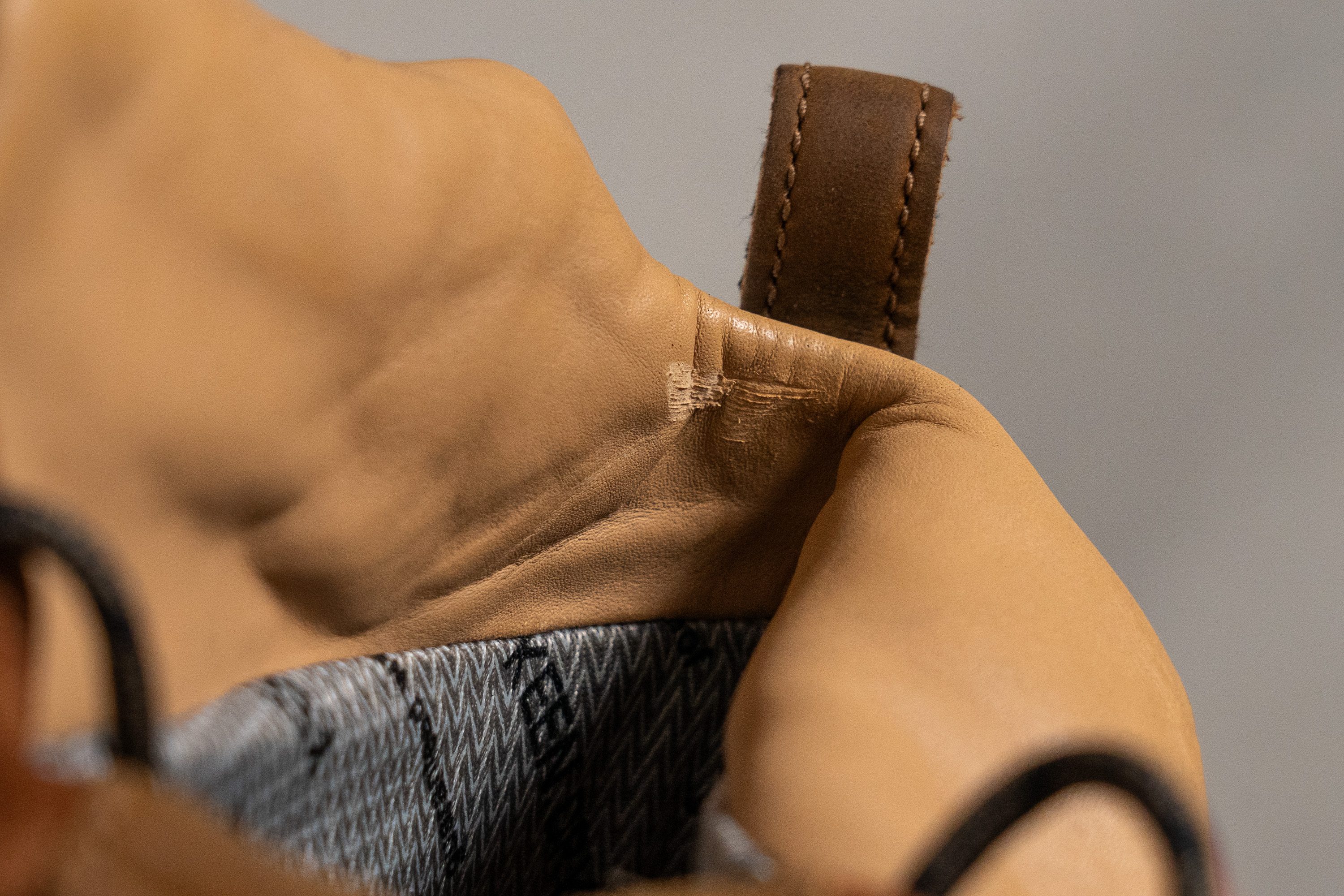
| Pyrenees | 4 |
| Average | 3.6 |
Outsole hardness
Looks like KEEN utilized one of the hardest rubbers on the market for the Pyrenees!
Known as KEEN.ALL-TERRAIN, this compound showed a very high reading of 92.0 HC on our durometer. It is among the hardest outsoles in our lab.
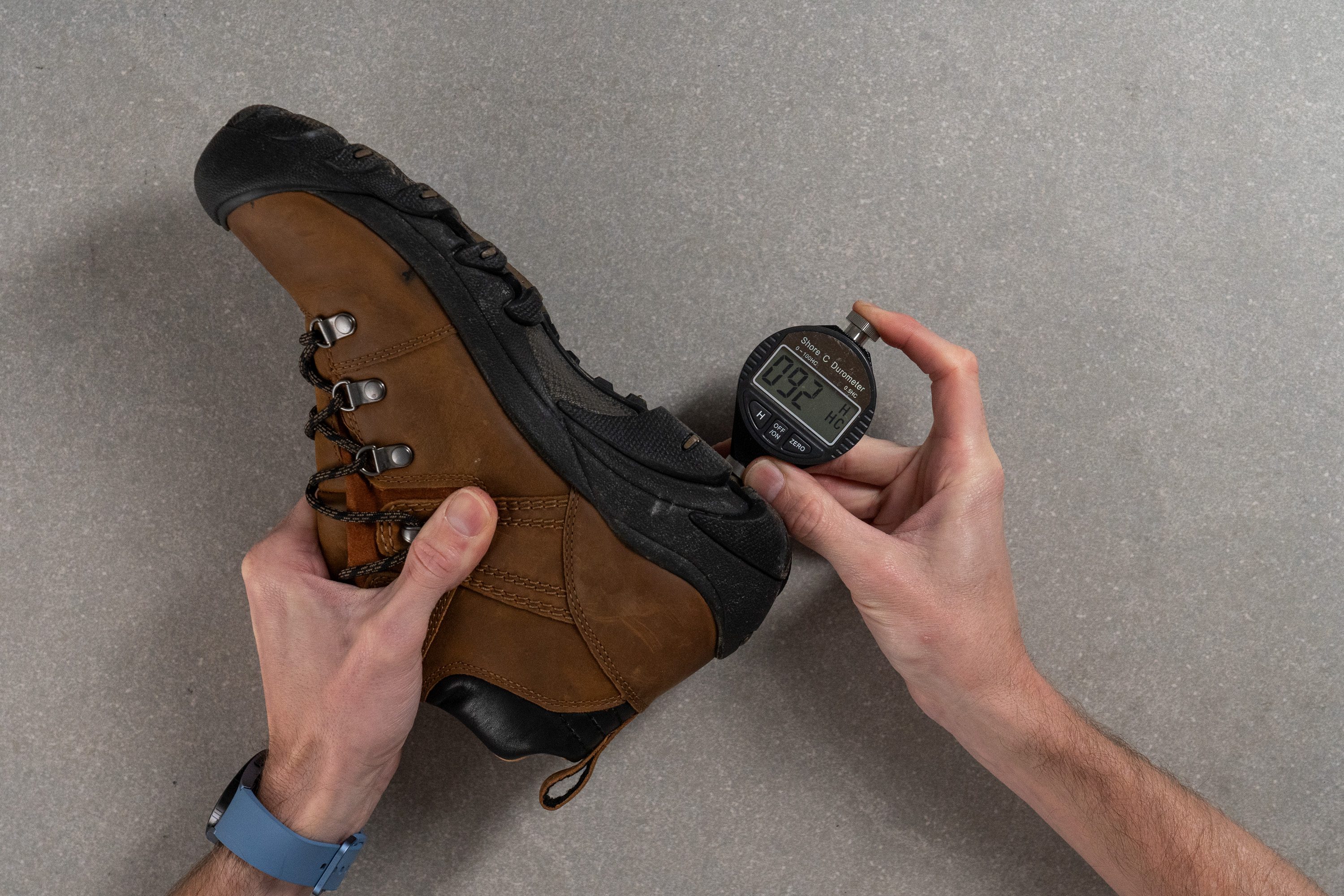
| Pyrenees | 92.0 HC |
| Average | 87.1 HC |
Outsole durability
To our great surprise, this hard rubber failed to translate into higher abrasion resistance in our Dremel test.
We held the tool against the outsole for 22 seconds at a high 10K RPM speed. Normally, hiking boots end up with a millimeter-deep dent but our tread gauge showed 1.4 mm in the Pyrenees.
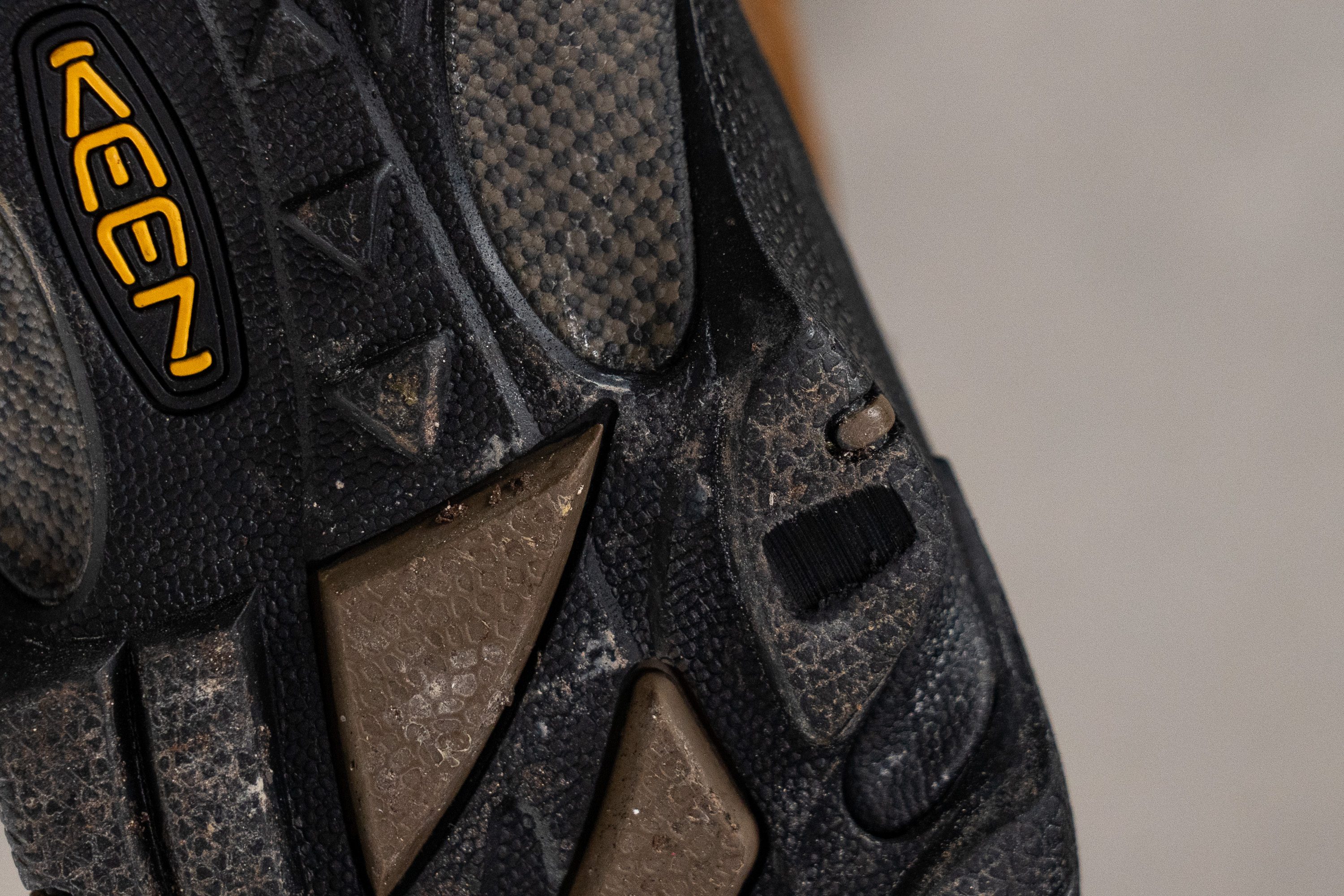
Other backpacking shoes like the La Sportiva Ultra Raptor II Mid GTX performed much better in this test (0.37 mm).
| Pyrenees | 1.4 mm |
| Average | 0.8 mm |
Outsole thickness
The brand does compensate for that with a thicker layer of rubber. Based on our caliper, it's thicker than average at 4.3 mm.
But we anticipate that the boot will lose its grip long before the outsole wears out due to damaged treads.
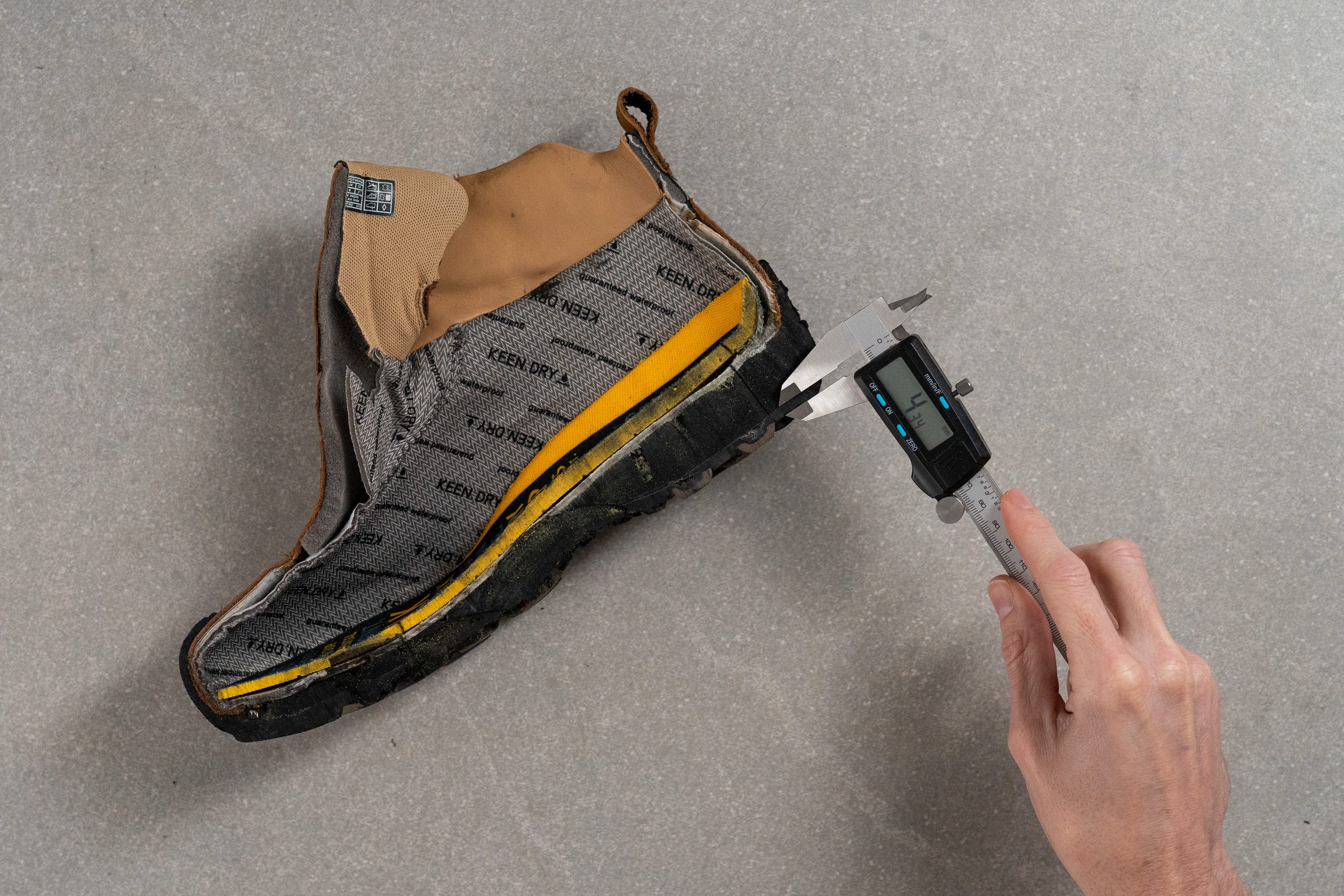
| Pyrenees | 4.3 mm |
| Average | 2.9 mm |
Warranty
To keep future buyers reassured, KEEN offers a one-year warranty for its footwear. It covers manufacturing and workmanship defects.
But because of the somewhat vague description, we are not sure which specific cases this guarantee applies to.
Misc
Insole thickness
Bolstering the midsole’s supply of comfort is the boot’s contoured footbed. Measuring its thickness in the heel, our caliper showed 5.8 mm.
Even though it is not as thick as some insoles can be, we found that offers plenty of underfoot padding and even helps to hold the heel in place with its cradled design.
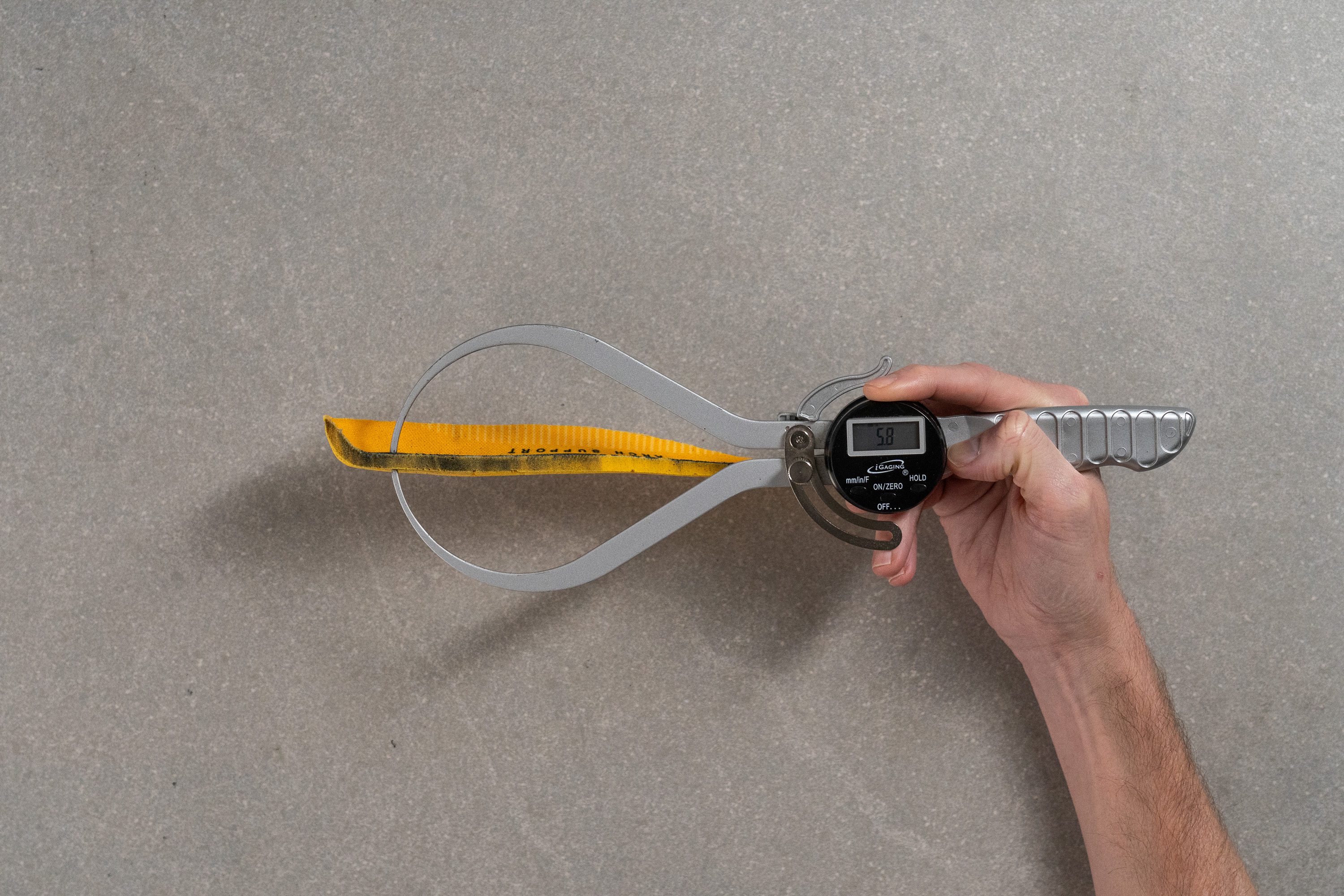
| Pyrenees | 5.8 mm |
| Average | 6.0 mm |
Removable insole
The insole is removable in the KEEN Pyrenees.
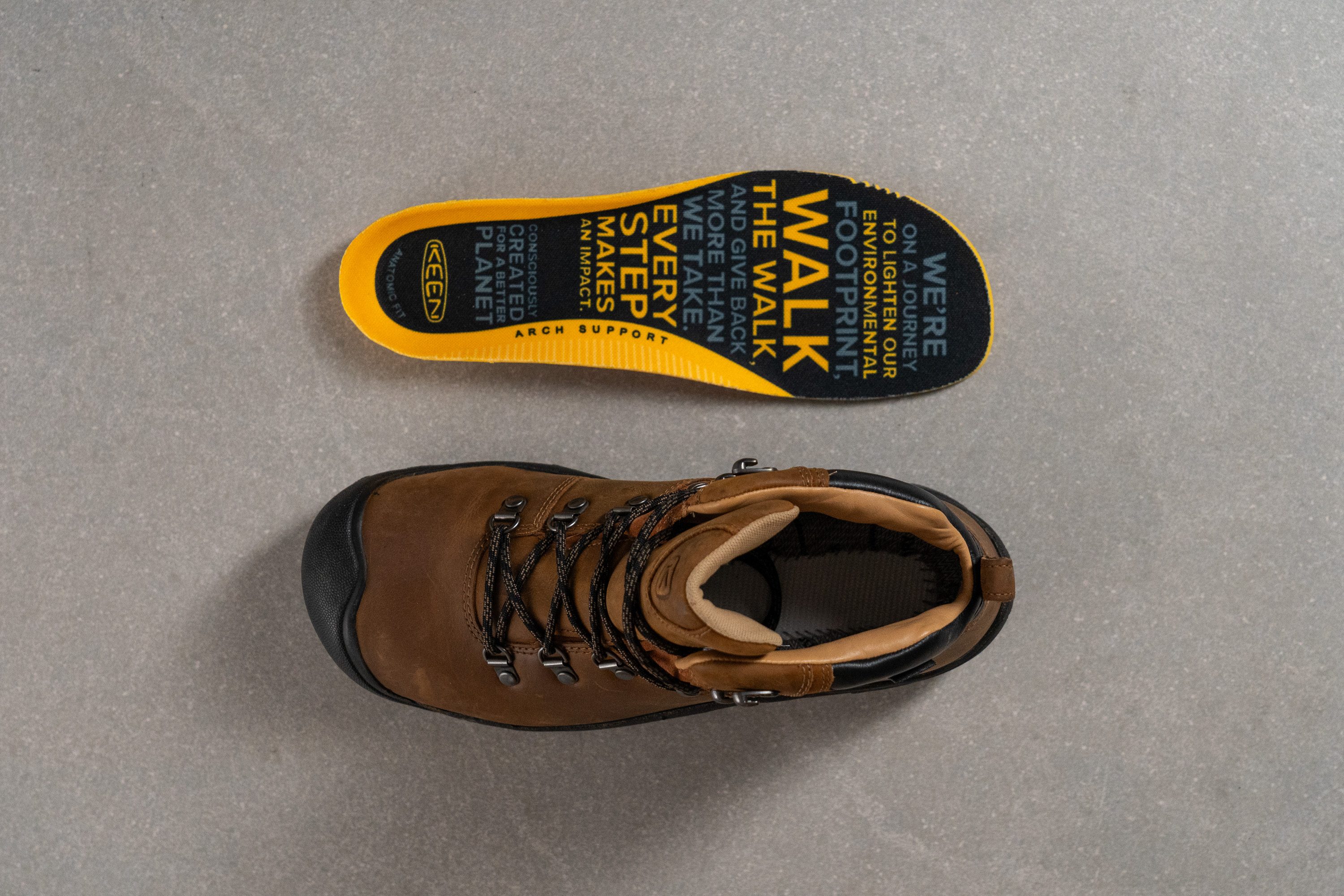
| Pyrenees | Yes |
Midsole softness in cold (%)
Because this leather boot is more appropriate for cold weather, we had to test how its soft midsole behaves in low temperatures.
Leaving the Pyrenees in the freezer for 20 minutes, we were amazed to find that it still remained much softer than average! Even after getting 21.2% firmer compared to room temperature, this KEEN boot showed 19.3 HA on the durometer.
That's 45% softer than most midsoles at room temperature!
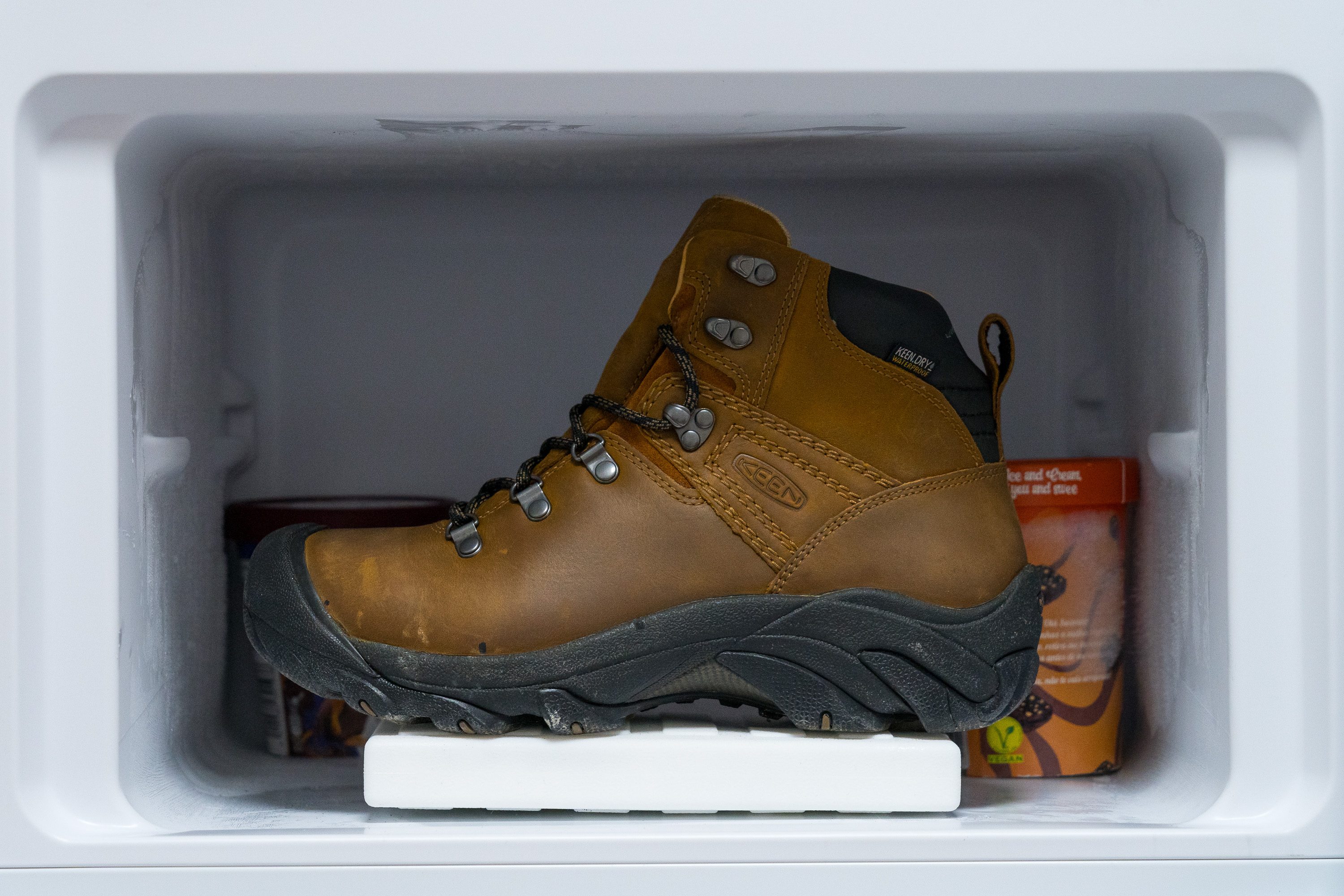
| Pyrenees | 21% |
| Average | 20% |
Reflective elements
No reflective elements are to be seen on this KEEN boot. If this feature is important to you, consider the La Sportiva Ultra Raptor II Mid GTX.
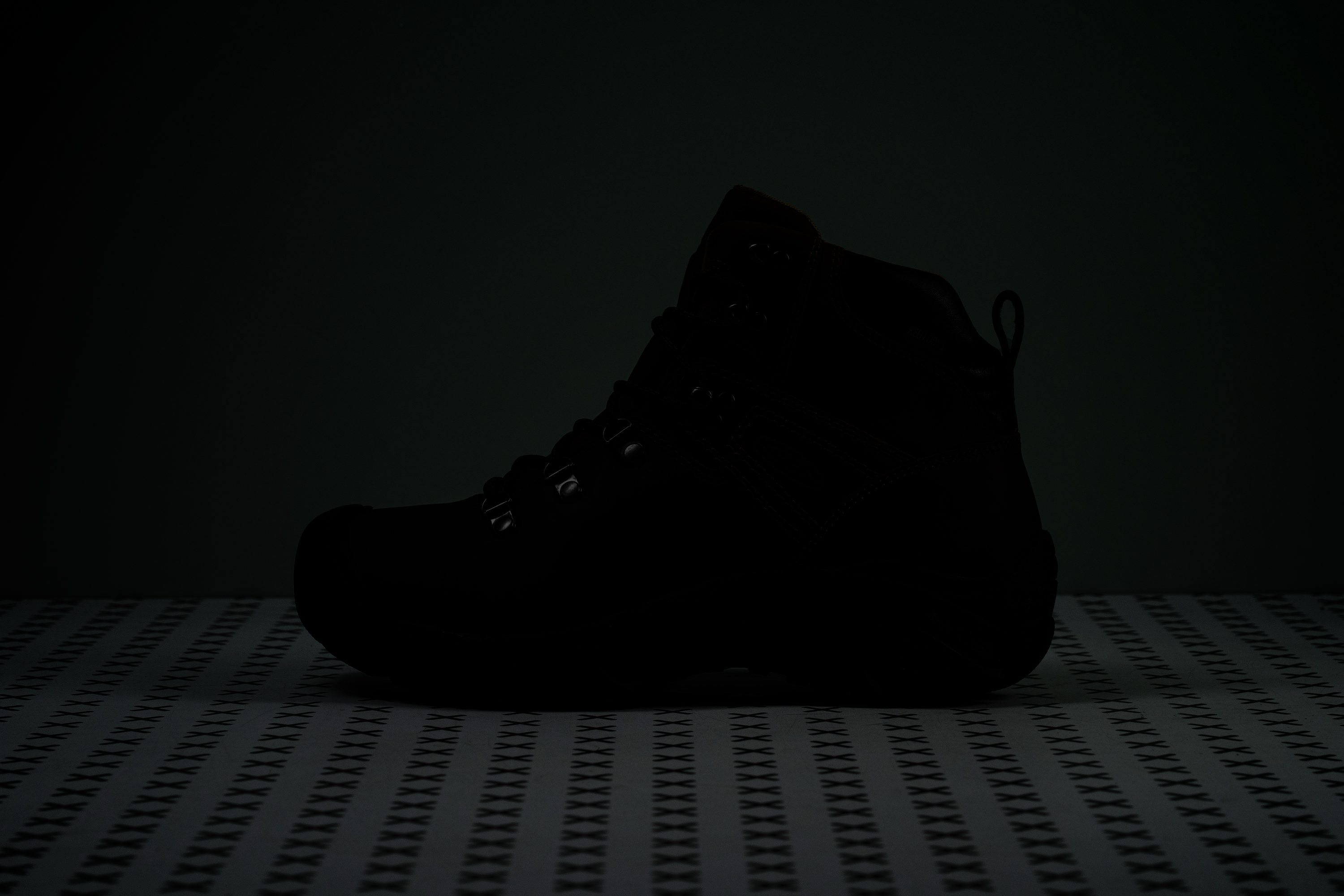
| Pyrenees | No |
Tongue padding
As befits a backpacking boot, the Pyrenees features a rather generously padded tongue.
Using a caliper, we measured its thickness at 12 mm, which is similar to other boots in this footwear category.
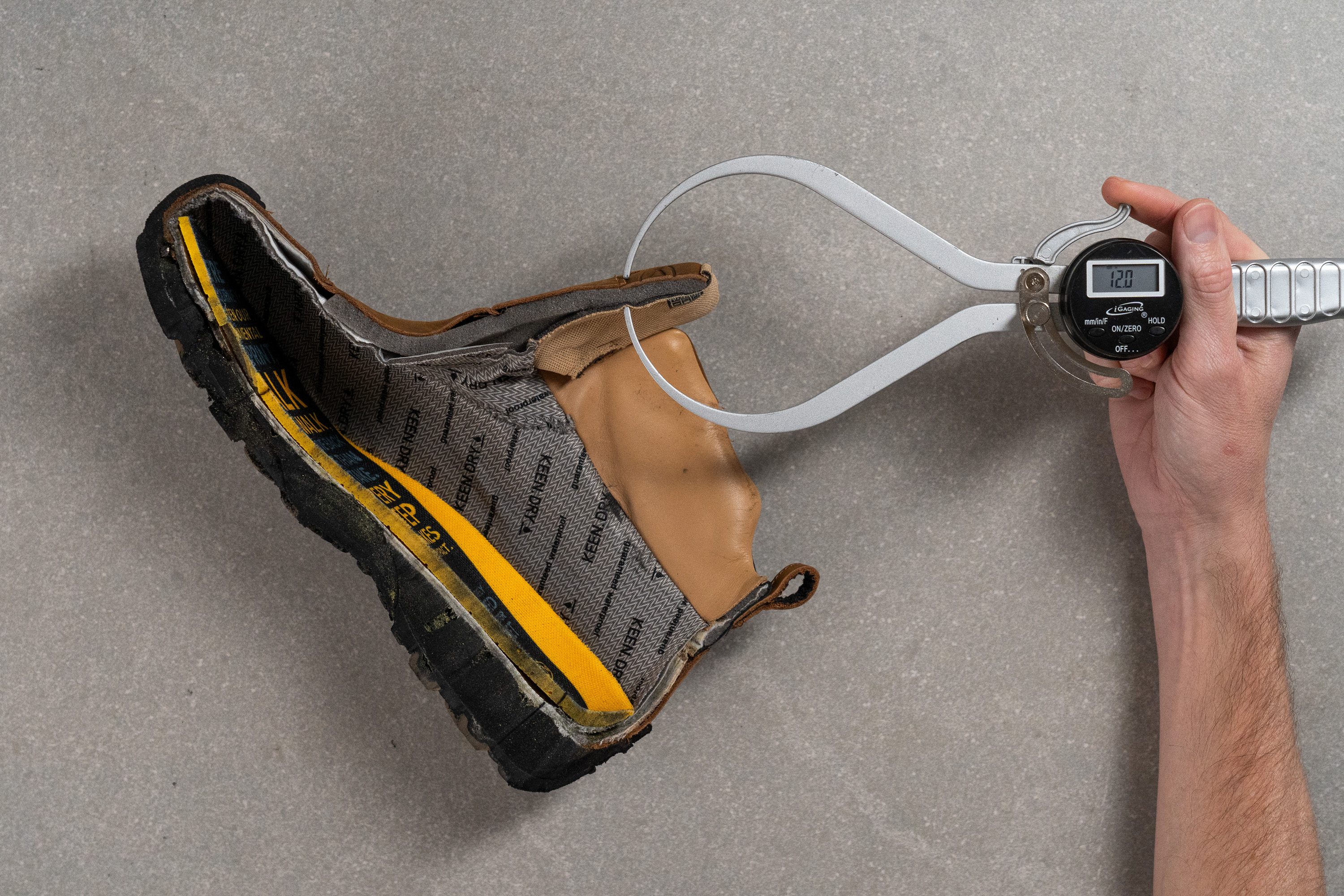
| Pyrenees | 12.0 mm |
| Average | 11.2 mm |
Tongue: gusset type
The KEEN Pyrenees comes with a fully gusseted tongue, leaving no gaps for water to seep through. Not to mention that this setup prevents the tongue from shifting and helps to create a highly secure foothold.
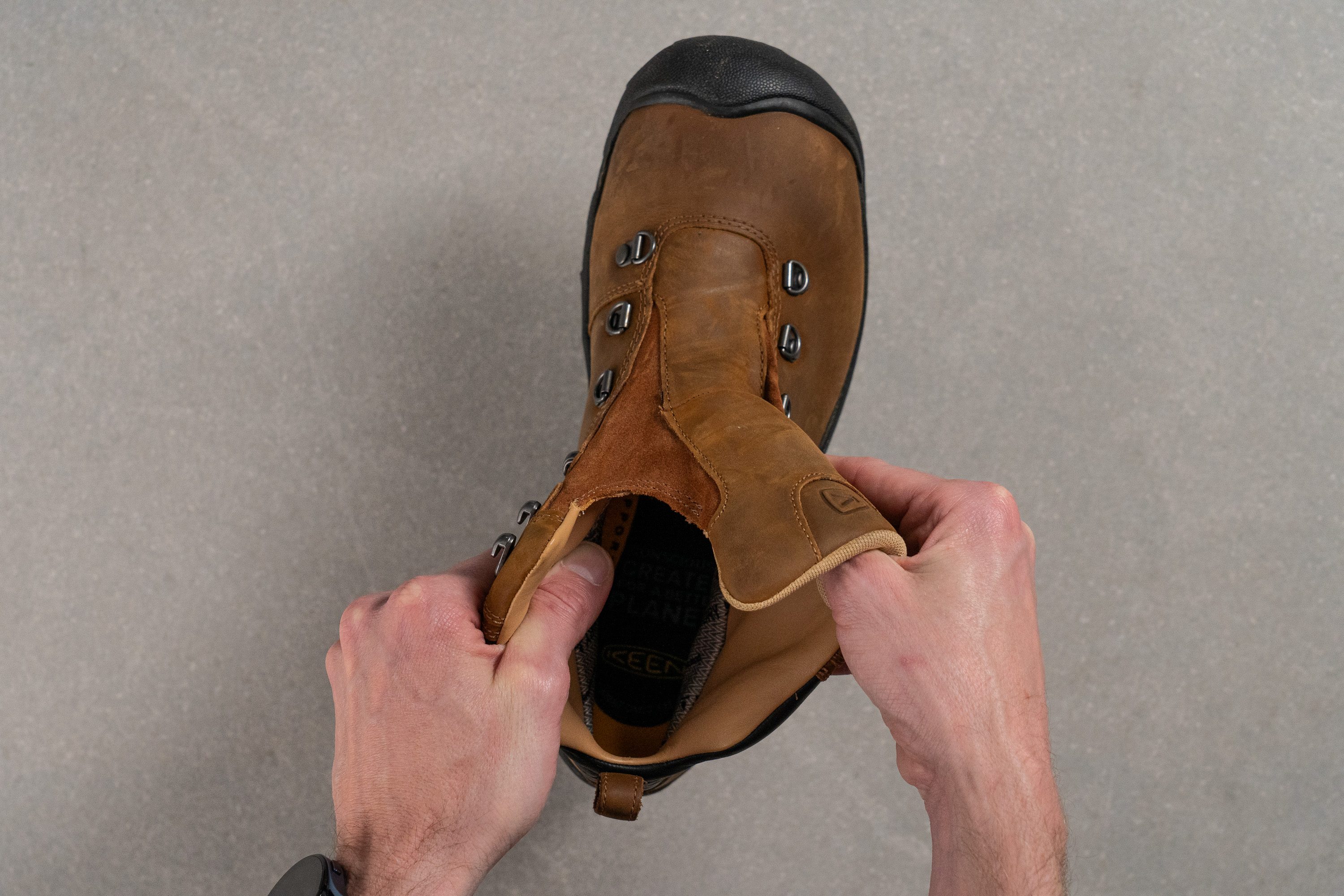
| Pyrenees | Both sides (full) |
Heel tab
Attached at the back of the collar is a handy finger loop. It really eased our way into the boot.
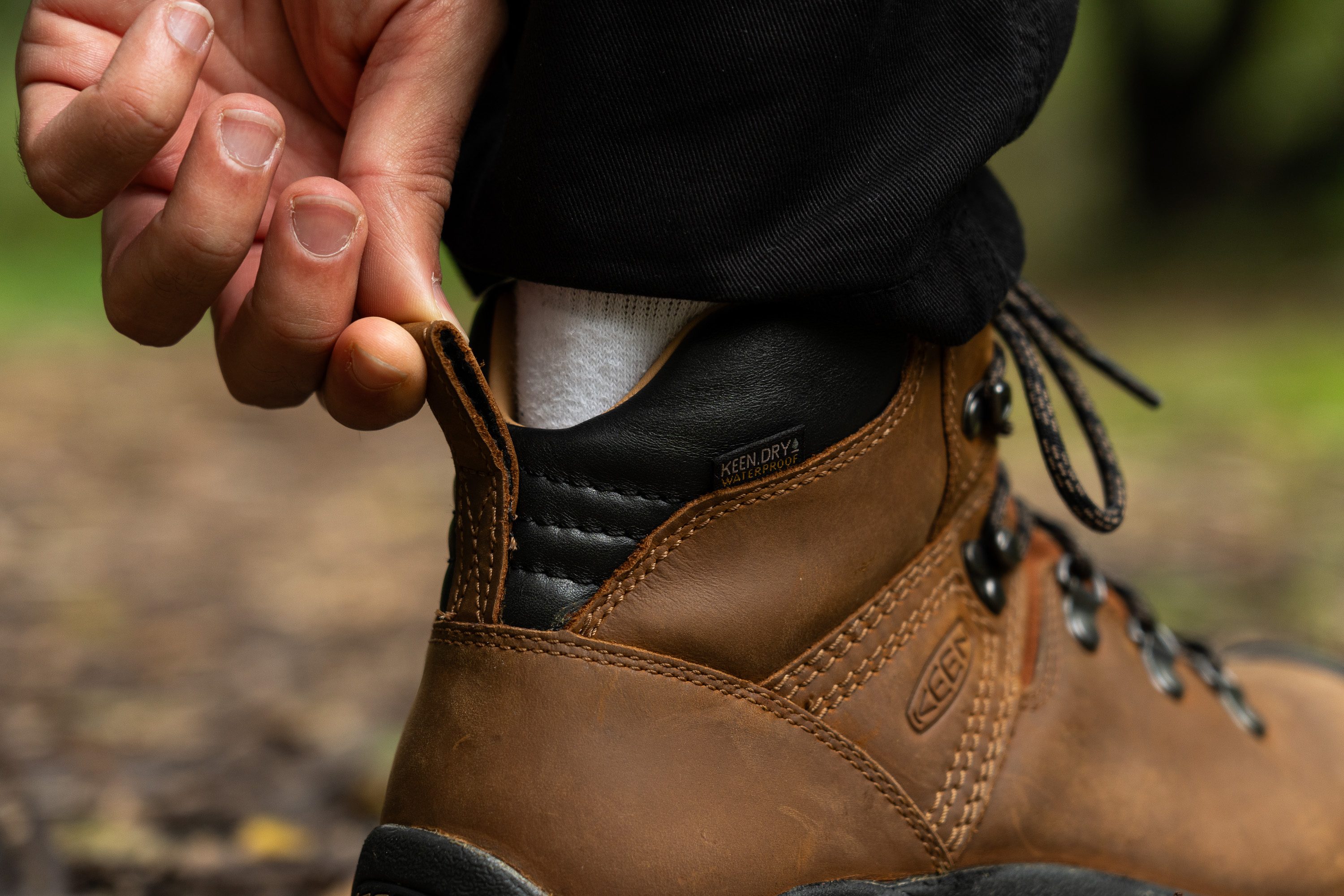
| Pyrenees | Finger loop |
Sustainability
The KEEN brand is very vocal about its approach to a more sustainable manufacturing process. In line with that, it utilizes the following parts in the Pyrenees boot:
- Leather from LWG-certified tannery (environmentally preferred)
- PFAS-free water repellent
- Eco Anti-Odor for natural odor control
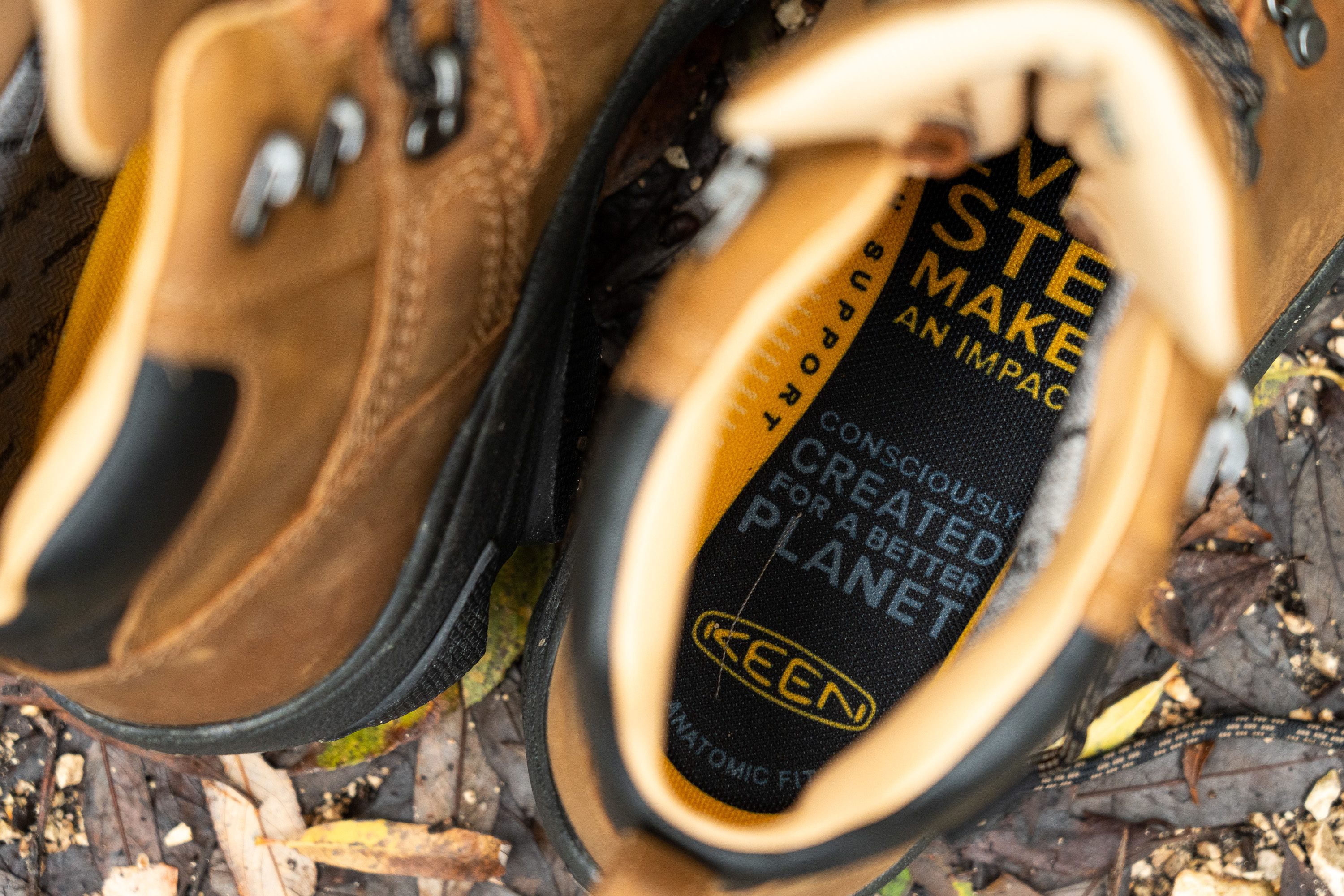
Ankle rubbing
But unfortunately, the edge of the tongue caused some notable discomfort that we just couldn't write off.
It felt quite stiff and kept digging into our shins, chafing the area of contact. Our workaround was to not lace the boot all the way up and it worked.
Luckily, the rubbing subsided after a few hikes.

